Thesis Vs Hypothesis: Understanding The Basis And The Key Differences
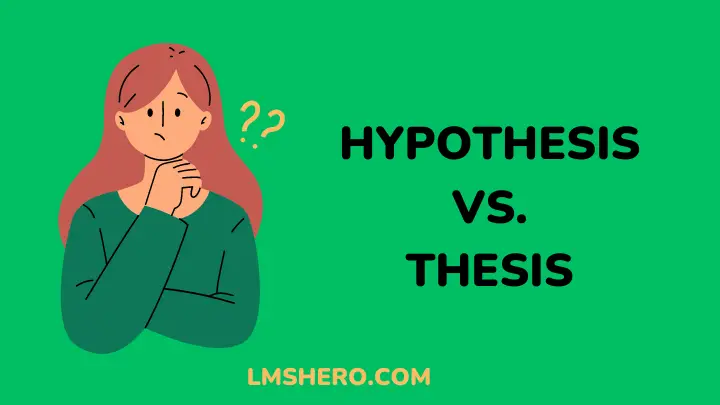
Hypothesis vs. thesis: They sound similar and seem to discuss the same thing. However, these terms have vastly different meanings and purposes. You may have encountered these concepts in school or research, but understanding them is key to executing quality work.
As an inexperienced writer, the thought of differentiating between hypotheses and theses might seem like an insurmountable task. Fortunately, I am here to help.
In this article, I’ll discuss hypothesis vs. thesis, break down their differences, and show you how to apply this knowledge to create quality written works. Let’s get to it!

Thesis vs. Hypothesis: Understanding the Basis
The power of a thesis.
A thesis is a foundational element in academic writing and research. It also serves as the linchpin of your argument, encapsulating the central idea or point you aim to prove or disprove throughout your work.
A thesis statement is typically found at the end of the introduction in an essay or research paper, succinctly summarizing the overarching theme.
Crafting a strong thesis
- Understand the research: Begin by thoroughly comprehending the requirements and objectives of your research. Having a clear understanding of the topic you are arguing or analyzing is crucial.
- Choose a clear topic: Choose one that interests you and aligns with the research’s scope. Clarity and focus are essential in crafting a strong thesis.
- Conduct research: Gather relevant information and sources to develop a deep understanding of your topic. This research will provide the evidence and context for your thesis.
- Identify your position: Determine your stance or position on the topic. Your thesis should express a clear opinion or argument you intend to support throughout your work.
- Narrow down your focus: Refine your topic and thesis more precisely. Avoid broad, generalized statements. Instead, aim for a concise and specific thesis that addresses a particular aspect of the topic.
- Test for validity: Ensuring that you can argue and provide evidence to support your thesis is crucial. It should not be a self-evident or universally accepted fact.
- Write and revise: Craft your thesis statement as a clear, concise sentence summarizing your main argument. Revise and refine it as needed to improve its clarity and strength.
Remember that a strong thesis serves as the foundation for your entire piece of writing, guiding your readers and keeping your work focused and organized.
Hypothesis: The scientific proposition
In contrast, a hypothesis is a tentative proposition or educated guess. It is the initial step in the scientific method, where researchers formulate a hunch to test their assumptions and theories.
A hypothesis is an assertion that can be proven or disproven through experimentation and observation.
Formulating a hypothesis
- Identify the research question: Identify the research question or problem you want to investigate. Clearly define the scope and boundaries of your inquiry.
- Review existing knowledge: Conduct a literature review to gather information about the topic. Understand the existing body of knowledge and literature in the field.
- Formulate a tentative explanation: Based on your research and understanding of the topic, create a tentative explanation or educated guess about the phenomenon you are studying. This should be a statement that can be falsifiable through experimentation or observation.
- Make it testable: Ensure that your hypothesis is testable and falsifiable. In other words, designing experiments or gathering data supporting or refuting your hypothesis should be possible.
- Specify variables and predictions: Clearly define the variables involved in your hypothesis and make predictions about how changes in these variables will affect the outcome. It also helps in designing experiments and collecting data to test your hypothesis.
Formulating a hypothesis is a crucial step in the scientific method since it directs research and guides efforts to validate theories or uncover new knowledge.
Key Differences Between Thesis vs. Hypothesis
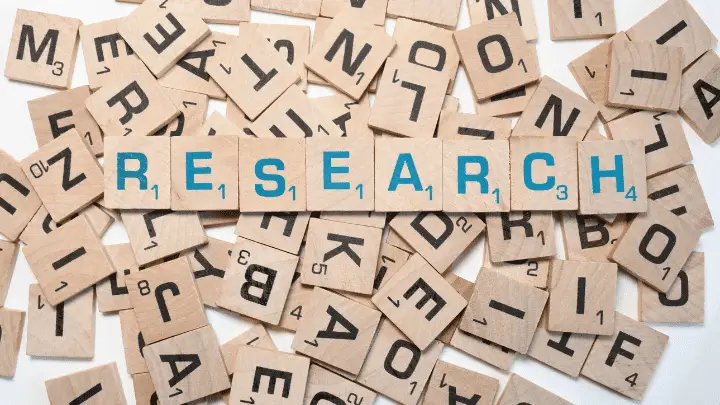
1. Nature of statement
- Thesis: A thesis presents a clear and definitive statement or argument that summarizes the main point of a research paper or essay.
- Hypothesis: A hypothesis is a tentative and testable proposition or educated guess that suggests a possible outcome of an experiment or research study.
- Thesis: The primary purpose of a thesis is to provide a central focus and roadmap for the entire piece of academic writing.
- Hypothesis: The main purpose of a hypothesis is to guide scientific research by proposing a specific prediction that can be tested and validated.
3. Testability
- Thesis: A thesis is not typically subjected to experimentation but serves as a point of argumentation and discussion.
- Hypothesis: A hypothesis, on the other hand, is explicitly designed for testing through experimentation or observation, making it a fundamental part of the scientific method.
4. Research stage
- Thesis: A thesis is usually formulated after extensive research and analysis as a conclusion or summary of findings.
- Hypothesis: A hypothesis is formulated at the beginning of a research project to establish a basis for experimentation and data collection.
- Thesis: A thesis typically encompasses the entire research paper or essay, providing an overarching theme throughout the work.
- Hypothesis: A hypothesis addresses a specific aspect of a research question or problem, guiding the focus of experiments or investigations.
6. Examples
- Thesis: Example of a thesis statement: “The impact of climate change on marine ecosystems is irreversible.”
- Hypothesis: Example of a hypothesis: “If increased temperatures continue, coral reefs will experience bleaching events.”
- Thesis: The thesis represents a conclusion or a well-supported argument and does not aim to be proven or disproven.
- Hypothesis: On the other hand, a hypothesis aims to be tested and validated through empirical evidence. Besides, it can be proven true or false based on the results of experiments or observations.
These differences highlight the distinct roles that the thesis and hypothesis play in academic writing and scientific research, with one providing a point of argumentation and the other guiding the scientific inquiry process.
Can a hypothesis become a thesis?
Yes. A hypothesis can develop into a thesis as it accumulates substantial evidence through research.
Do all research papers require a thesis?
Not necessarily. While most academic papers benefit from a clear thesis, some, like purely descriptive papers, may follow a different structure.
Can a thesis be proven wrong?
Yes. The purpose of a thesis is not only to prove but also to encourage critical analysis. It can be proven wrong with compelling counterarguments and evidence.
How long should a thesis statement be?
A thesis statement should be concise and to the point, typically one or two sentences.
Is a hypothesis only used in scientific research?
Although hypotheses are typically linked to scientific research, they can also be used to verify assumptions and theories in other areas.
Can a hypothesis be vague?
No. When creating a hypothesis, it’s important to make it clear and able to be tested. Developing experiments and making conclusions based on the results can be difficult if the hypothesis needs clarification.
Final Thoughts
In conclusion, understanding the differences between a hypothesis and a thesis is vital to crafting successful research projects and academic papers. While they may seem interchangeable at first glance, these two concepts serve distinct purposes in the research process.
A hypothesis serves as a testable prediction or explanation, whereas a thesis is the central argument of a paper or project. Your work can lack clarity and purpose without understanding the difference.
So, the next time you embark on a research project, take the time to ensure that you understand the fundamental difference between a hypothesis and a thesis. Doing so can lead to more focused, meaningful research that advances knowledge and understanding in your field.
You can also learn more about how long a thesis statement should be .
Thanks for reading.
You may also like:
- Discover Where Thesis Statement Is Located In An Essay
- Master’s Thesis Length: How Long Should A Master’s Thesis Be?
- How Long Is A Thesis Paper: Factors Involved & Formatting Tips
- Moral Argument – Examples And Benefits
- Examples of Work Ethic: Everyone Loves a Good Employee
People Also Read:

Why Do Waiters Get Paid So Little [+ How To Make More Money]

Navigating Workplace Norms: Can You Email A Resignation Letter?

Difference Between Roles And Responsibilities

Does Suspension Mean Termination?

Moral Claim: Definition, Significance, Contemporary Issues, & Challenges

Why Can’t You Flush The Toilet After A Drug Test?


Home » Education » Difference Between Thesis and Hypothesis
Difference Between Thesis and Hypothesis
Main difference – thesis vs hypothesis .
Thesis and hypothesis are two common terms that are often found in research studies. Hypothesis is a logical proposition that is based on existing knowledge that serves as the starting point of an investigation. A thesis is a statement that is put forward as a premise to be maintained or proved. The main difference between thesis and hypothesis is that thesis is found in all research studies whereas a hypothesis is mainly found in experimental quantitative research studies.
This article explains,
1. What is a Thesis? – Definition, Features, Function
2. What is a Hypothesis? – Definition, Features, Function

What is a Thesis
The word thesis has two meanings in a research study. Thesis can either refer to a dissertation or a thesis statement. Thesis or dissertation is the long essay or document that consists of the research study. Thesis can also refer to a theory or statement that is used as a premise to be maintained or proved.
The thesis statement in a research article is a sentence found at the beginning of the paper that presents the main argument of the paper. The rest of the document will gather, organize and present evidence to support this argument. The thesis statement will basically present the topic of the paper and indicate what position the researcher is going to take in relation to this topic. A thesis statement can generally be found at the end of the first paragraph (introductory paragraph) of the paper.

What is a Hypothesis
A hypothesis is a logical assumption based on available evidence. Hypothesis is defined as “a supposition or proposed explanation made on the basis of limited evidence as a starting point for further investigation” in the Oxford dictionary and as “an idea or theory that is not proven but that leads to further study or discussion” in the Merriam-Webster dictionary. In simple words, it is an educated guess that is not proven with concrete scientific evidence. Once it is scientifically tested and proven, it becomes a theory. However, it is important to note that a hypothesis can be accurate or inaccurate.
Hypotheses are mostly used in experiments and research studies. However, hypotheses are not used in every research study. They are mostly used in quantitative research studies that deal with experiments. Hypotheses are often used to test a specific model or theory . They can be used only when the researcher has sufficient knowledge about the subject since hypothesis are always based on the existing knowledge. Once the hypothesis is built, the researcher can find and analyze data and use them to prove or disprove the hypothesis.

Thesis: A thesis is a “statement or theory that is put forward as a premise to be maintained or proved” or a “long essay or dissertation involving personal research, written by a candidate for a university degree” (Oxford dictionary).
Hypothesis: A hypothesis is “a supposition or proposed explanation made on the basis of limited evidence as a starting point for further investigation” (Oxford dictionary).
Thesis: Thesis statement can be found in all research papers.
Hypothesis: Hypotheses are usually found in experimental quantitative research studies.
Thesis: Thesis statement may explain the hypothesis and how the researcher intends to support it.
Hypothesis: Hypothesis is an educated guess based on the existing knowledge.
Image Courtesy:
“Master’s Thesis” by Henri Sivonen (CC BY 2.0) via Flickr
“Colonial Flagellate Hypothesis” By Katelynp1 – Own work (CC BY-SA 3.0) via Commons Wikimedia
About the Author: Hasa
Hasanthi is a seasoned content writer and editor with over 8 years of experience. Armed with a BA degree in English and a knack for digital marketing, she explores her passions for literature, history, culture, and food through her engaging and informative writing.
You May Also Like These
Leave a reply cancel reply.

- Richard G. Trefry Library
- Writing & Citing
Q. What is the difference between a thesis statement and a hypothesis statement?

- Course-Specific
- Textbooks & Course Materials
- Tutoring & Classroom Help
- 1 Artificial Intelligence
- 43 Formatting
- 5 Information Literacy
- 13 Plagiarism
- 23 Thesis/Capstone/Dissertation
Answered By: APUS Librarians Last Updated: Apr 15, 2022 Views: 127848
Both the hypothesis statement and the thesis statement answer a research question.
- A hypothesis is a statement that can be proved or disproved. It is typically used in quantitative research and predicts the relationship between variables.
- A thesis statement is a short, direct sentence that summarizes the main point or claim of an essay or research paper. It is seen in quantitative, qualitative, and mixed methods research. A thesis statement is developed, supported, and explained in the body of the essay or research report by means of examples and evidence.
Every research study should contain a concise and well-written thesis statement. If the intent of the study is to prove/disprove something, that research report will also contain a hypothesis statement.
NOTE: In some disciplines, the hypothesis is referred to as a thesis statement! This is not accurate but within those disciplines it is understood that "a short, direct sentence that summarizes the main point" will be included.
For more information, see The Research Question and Hypothesis (PDF file from the English Language Support, Department of Student Services, Ryerson University).
How do I write a good thesis statement?
How do I write a good hypothesis statement?
- Share on Facebook
Was this helpful? Yes 115 No 63
writing tutor
Related topics.
Need personalized help? Librarians are available 365 days/nights per year! See our schedule.

Learn more about how librarians can help you succeed.
While Sandel argues that pursuing perfection through genetic engineering would decrease our sense of humility, he claims that the sense of solidarity we would lose is also important.
This thesis summarizes several points in Sandel’s argument, but it does not make a claim about how we should understand his argument. A reader who read Sandel’s argument would not also need to read an essay based on this descriptive thesis.
Broad thesis (arguable, but difficult to support with evidence)
Michael Sandel’s arguments about genetic engineering do not take into consideration all the relevant issues.
This is an arguable claim because it would be possible to argue against it by saying that Michael Sandel’s arguments do take all of the relevant issues into consideration. But the claim is too broad. Because the thesis does not specify which “issues” it is focused on—or why it matters if they are considered—readers won’t know what the rest of the essay will argue, and the writer won’t know what to focus on. If there is a particular issue that Sandel does not address, then a more specific version of the thesis would include that issue—hand an explanation of why it is important.
Arguable thesis with analytical claim
While Sandel argues persuasively that our instinct to “remake” (54) ourselves into something ever more perfect is a problem, his belief that we can always draw a line between what is medically necessary and what makes us simply “better than well” (51) is less convincing.
This is an arguable analytical claim. To argue for this claim, the essay writer will need to show how evidence from the article itself points to this interpretation. It’s also a reasonable scope for a thesis because it can be supported with evidence available in the text and is neither too broad nor too narrow.
Arguable thesis with normative claim
Given Sandel’s argument against genetic enhancement, we should not allow parents to decide on using Human Growth Hormone for their children.
This thesis tells us what we should do about a particular issue discussed in Sandel’s article, but it does not tell us how we should understand Sandel’s argument.
Questions to ask about your thesis
- Is the thesis truly arguable? Does it speak to a genuine dilemma in the source, or would most readers automatically agree with it?
- Is the thesis too obvious? Again, would most or all readers agree with it without needing to see your argument?
- Is the thesis complex enough to require a whole essay's worth of argument?
- Is the thesis supportable with evidence from the text rather than with generalizations or outside research?
- Would anyone want to read a paper in which this thesis was developed? That is, can you explain what this paper is adding to our understanding of a problem, question, or topic?
- picture_as_pdf Thesis
What Is A Research (Scientific) Hypothesis? A plain-language explainer + examples
By: Derek Jansen (MBA) | Reviewed By: Dr Eunice Rautenbach | June 2020
If you’re new to the world of research, or it’s your first time writing a dissertation or thesis, you’re probably noticing that the words “research hypothesis” and “scientific hypothesis” are used quite a bit, and you’re wondering what they mean in a research context .
“Hypothesis” is one of those words that people use loosely, thinking they understand what it means. However, it has a very specific meaning within academic research. So, it’s important to understand the exact meaning before you start hypothesizing.
Research Hypothesis 101
- What is a hypothesis ?
- What is a research hypothesis (scientific hypothesis)?
- Requirements for a research hypothesis
- Definition of a research hypothesis
- The null hypothesis
What is a hypothesis?
Let’s start with the general definition of a hypothesis (not a research hypothesis or scientific hypothesis), according to the Cambridge Dictionary:
Hypothesis: an idea or explanation for something that is based on known facts but has not yet been proved.
In other words, it’s a statement that provides an explanation for why or how something works, based on facts (or some reasonable assumptions), but that has not yet been specifically tested . For example, a hypothesis might look something like this:
Hypothesis: sleep impacts academic performance.
This statement predicts that academic performance will be influenced by the amount and/or quality of sleep a student engages in – sounds reasonable, right? It’s based on reasonable assumptions , underpinned by what we currently know about sleep and health (from the existing literature). So, loosely speaking, we could call it a hypothesis, at least by the dictionary definition.
But that’s not good enough…
Unfortunately, that’s not quite sophisticated enough to describe a research hypothesis (also sometimes called a scientific hypothesis), and it wouldn’t be acceptable in a dissertation, thesis or research paper . In the world of academic research, a statement needs a few more criteria to constitute a true research hypothesis .
What is a research hypothesis?
A research hypothesis (also called a scientific hypothesis) is a statement about the expected outcome of a study (for example, a dissertation or thesis). To constitute a quality hypothesis, the statement needs to have three attributes – specificity , clarity and testability .
Let’s take a look at these more closely.
Need a helping hand?
Hypothesis Essential #1: Specificity & Clarity
A good research hypothesis needs to be extremely clear and articulate about both what’ s being assessed (who or what variables are involved ) and the expected outcome (for example, a difference between groups, a relationship between variables, etc.).
Let’s stick with our sleepy students example and look at how this statement could be more specific and clear.
Hypothesis: Students who sleep at least 8 hours per night will, on average, achieve higher grades in standardised tests than students who sleep less than 8 hours a night.
As you can see, the statement is very specific as it identifies the variables involved (sleep hours and test grades), the parties involved (two groups of students), as well as the predicted relationship type (a positive relationship). There’s no ambiguity or uncertainty about who or what is involved in the statement, and the expected outcome is clear.
Contrast that to the original hypothesis we looked at – “Sleep impacts academic performance” – and you can see the difference. “Sleep” and “academic performance” are both comparatively vague , and there’s no indication of what the expected relationship direction is (more sleep or less sleep). As you can see, specificity and clarity are key.

Hypothesis Essential #2: Testability (Provability)
A statement must be testable to qualify as a research hypothesis. In other words, there needs to be a way to prove (or disprove) the statement. If it’s not testable, it’s not a hypothesis – simple as that.
For example, consider the hypothesis we mentioned earlier:
Hypothesis: Students who sleep at least 8 hours per night will, on average, achieve higher grades in standardised tests than students who sleep less than 8 hours a night.
We could test this statement by undertaking a quantitative study involving two groups of students, one that gets 8 or more hours of sleep per night for a fixed period, and one that gets less. We could then compare the standardised test results for both groups to see if there’s a statistically significant difference.
Again, if you compare this to the original hypothesis we looked at – “Sleep impacts academic performance” – you can see that it would be quite difficult to test that statement, primarily because it isn’t specific enough. How much sleep? By who? What type of academic performance?
So, remember the mantra – if you can’t test it, it’s not a hypothesis 🙂

Defining A Research Hypothesis
You’re still with us? Great! Let’s recap and pin down a clear definition of a hypothesis.
A research hypothesis (or scientific hypothesis) is a statement about an expected relationship between variables, or explanation of an occurrence, that is clear, specific and testable.
So, when you write up hypotheses for your dissertation or thesis, make sure that they meet all these criteria. If you do, you’ll not only have rock-solid hypotheses but you’ll also ensure a clear focus for your entire research project.
What about the null hypothesis?
You may have also heard the terms null hypothesis , alternative hypothesis, or H-zero thrown around. At a simple level, the null hypothesis is the counter-proposal to the original hypothesis.
For example, if the hypothesis predicts that there is a relationship between two variables (for example, sleep and academic performance), the null hypothesis would predict that there is no relationship between those variables.
At a more technical level, the null hypothesis proposes that no statistical significance exists in a set of given observations and that any differences are due to chance alone.
And there you have it – hypotheses in a nutshell.
If you have any questions, be sure to leave a comment below and we’ll do our best to help you. If you need hands-on help developing and testing your hypotheses, consider our private coaching service , where we hold your hand through the research journey.

Psst... there’s more!
This post was based on one of our popular Research Bootcamps . If you're working on a research project, you'll definitely want to check this out ...
You Might Also Like:

16 Comments
Very useful information. I benefit more from getting more information in this regard.
Very great insight,educative and informative. Please give meet deep critics on many research data of public international Law like human rights, environment, natural resources, law of the sea etc
In a book I read a distinction is made between null, research, and alternative hypothesis. As far as I understand, alternative and research hypotheses are the same. Can you please elaborate? Best Afshin
This is a self explanatory, easy going site. I will recommend this to my friends and colleagues.
Very good definition. How can I cite your definition in my thesis? Thank you. Is nul hypothesis compulsory in a research?
It’s a counter-proposal to be proven as a rejection
Please what is the difference between alternate hypothesis and research hypothesis?
It is a very good explanation. However, it limits hypotheses to statistically tasteable ideas. What about for qualitative researches or other researches that involve quantitative data that don’t need statistical tests?
In qualitative research, one typically uses propositions, not hypotheses.
could you please elaborate it more
I’ve benefited greatly from these notes, thank you.
This is very helpful
well articulated ideas are presented here, thank you for being reliable sources of information
Excellent. Thanks for being clear and sound about the research methodology and hypothesis (quantitative research)
I have only a simple question regarding the null hypothesis. – Is the null hypothesis (Ho) known as the reversible hypothesis of the alternative hypothesis (H1? – How to test it in academic research?
this is very important note help me much more
Trackbacks/Pingbacks
- What Is Research Methodology? Simple Definition (With Examples) - Grad Coach - […] Contrasted to this, a quantitative methodology is typically used when the research aims and objectives are confirmatory in nature. For example,…
Submit a Comment Cancel reply
Your email address will not be published. Required fields are marked *
Save my name, email, and website in this browser for the next time I comment.
- Print Friendly

The Real Differences Between Thesis and Hypothesis (With table)
A thesis and a hypothesis are two very different things, but they are often confused with one another. In this blog post, we will explain the differences between these two terms, and help you understand when to use which one in a research project.
As a whole, the main difference between a thesis and a hypothesis is that a thesis is an assertion that can be proven or disproven, while a hypothesis is a statement that can be tested by scientific research.
We probably need to expand a bit on this topic to make things clearer for you, let’s start with definitions and examples.
Definitions
As always, let’s start with the definition of each term before going further.

A thesis is a statement or theory that is put forward as a premise to be maintained or proved. A thesis statement is usually one sentence, and it states your position on the topic at hand.
A hypothesis is a statement that can be tested by scientific research. A hypothesis is usually based on observations, and it seeks to explain how these observations fit together.
You may also like:
- Differences between Hardcover and Paperback
- Differences between Average and Median
- Differences between Embassy and Consulate
The best way to understand the slight difference between those terms, is to give you an example for each of them.
If you are writing a paper about the effects of climate change on the environment, your thesis might be “Climate change is causing irreparable damage to our planet, and we must take action to prevent further damage”.
If you observe that the leaves on a tree are turning yellow, your hypothesis might be “The tree is sick”. It’s the starting point of experimental research: what can you do then to prove if your hypothesis is right or wrong?
If your hypothesis is correct, then further research should be able to confirm it. However, if your hypothesis is incorrect, research will disprove it. Either way, a hypothesis is an important part of the scientific process.
Taking a look at the etymology of words can help you to remember which one to use is each case.
The word “thesis” comes from the Greek θέσις, meaning “something put forth”, and refers to an intellectual proposition.
The word “hypothesis” comes from the Greek words “hupo,” meaning “under”, and “thesis” that we just explained.
This reflects the fact that a hypothesis is an educated guess, based on observations.
Argumentation vs idea
Hypothesis are generally base on simple observation, while thesis imply that more work has been done on the topic.
A thesis is usually the result of extensive research and contemplation, and seeks to prove a point or theory.
A hypothesis is only a statement that need to be tested by observation or experimentation.
5 mains differences between thesis and hypothesis
Thesis and hypothesis are different in several ways, here are the 5 keys differences between those terms:
- A thesis is a statement that can be argued, while a hypothesis cannot be argued.
- A thesis is usually longer than a hypothesis.
- A thesis is more detailed than a hypothesis.
- A thesis is based on research, while a hypothesis may or may not be based on research.
- A thesis must be proven, while a hypothesis need not be proven.
So, in short, a thesis is an argument, while a hypothesis is a prediction. A thesis is more detailed and longer than a hypothesis, and it is based on research. Finally, a thesis must be proven, while a hypothesis does not need to be proven.
Is there a difference between a thesis and a claim?
Yes, there is a difference between a thesis and a claim. A thesis statement is usually one sentence that states your main argument, while a claim is a more general statement that can be supported by evidence.
Is a hypothesis a prediction?
No, a hypothesis is not a prediction. A prediction is a statement about what you think will happen in the future, whereas a hypothesis is a statement about what you think is causing a particular phenomenon.
What’s the difference between thesis and dissertation?
A thesis is usually shorter and more focused than a dissertation, and it is typically achieved in order to earn a bachelor’s degree. A dissertation is usually longer and more comprehensive, and it is typically completed in order to earn a master’s or doctorate degree.
What is a good thesis statement?
A good thesis statement is specific, debatable, and supports the main point of the paper. It should be clear what the researcher position is, and what evidence they will use to support it.
Thanks for reading! I hope this post helped clear up the differences between thesis and hypothesis. Like that kind of comparison? These other articles might be interesting for you:
- What is the Difference between Mandate and Law?
- The 6 Differences Between Space And Universe
- What’s the Difference Between Cosmology and Astrology?
I am very curious and I love to learn about all types of subjects. Thanks to my experience on the web, I share my discoveries with you on this site :)
Similar Posts

Missile Vs Artillery: What’s the exact difference? (Table)
What’s the difference between an artillery shell and a missile? This is a question that often confuses people. The two weapons systems are very similar, but there are some key differences. In this blog post, we will discuss the differences between artillery and missiles, and explain which one is better for your needs. The key…

Homicide vs. Murder: Breaking Down the Differences
Are you wondering about the difference between “homicide” and “murder”? It can be an obscure question for anyone not familiar with legal jargon. And let’s be honest, most of us are. But don’t worry, I’m here to clear it up for good. The main difference between homicide and murder lies in the intent behind the…

What are the Differences between a King and the Emperor?
A king is a monarch, who rules for his whole lifetime after his coronation. But what is the Emperor in comparison?Most people use both terms, but they have several differences in their respective contexts. The term King can refer to either a human or an animal with their specific territorial regions. In contrast, an emperor…

What’s the Difference between Tempo and Rhythm?
You may not be a great musician, and you’re lost in their vocabulary? Don’t worry.Today, I will explain the difference between two important keywords in music: tempo and rhythm. As a whole, the main difference between tempo and rhythm is that tempo measure only the music frequency, in BPM (beat per minute), while the rhythm…

7 Differences Between Greek and Roman Gods You Don’t Know
Many people get confused about the differences between Greek and Roman gods. There are a variety of similarities in the two god and goddess pantheons, but there are also key differences that are important to know about if you are going to talk about these religious figures. You should know the differences between the two…

What’s the Difference Between Tea and Infusion?
You may already notice this while shopping, you can find teas and infusions on the same shelves in your favorite supermarketBut do you know the difference between tea and infusion? Few people really know the answerAnd that’s what I’ll explain you in this post What’s the difference between tea and infusion?Tea is the drink obtained…
- Academic Skills
- Graduate research services
- Writing thesis sections - Part 2
Shaping the research question and hypothesis
This resource introduces approaches to writing the core parts of your thesis. It includes activities to help you apply tips and reflect on your own learning, and should take you 15-20 minutes to read and complete. Check out the further resources at the bottom of each section and references on the last page for more information on this topic.
The core part of your thesis starts with your research question or hypothesis and proceeds through your explanation of methods and results, or data analysis, and ends with a discussion of your findings.
The research question and hypothesis mark your own disciplinary territory and drive your research.
Whether you have both a research question and a hypothesis, and whether they are broken down into several sub-areas, will depend on your discipline and topic; but however they appear, it is important that they are clearly formulated.
Research question
A research question should:
- Focus on a clear, specific and significant problem or puzzle
- Be shaped in a way that allows it to be answered with different research results
- Be revisited frequently in the research process.
You can use the FINER criteria when developing a research question:
- F easible – is the research practical and achievable given time and resources?
- I nteresting – is the research intriguing, compelling and able to contribute to the field?
- N ovel – is the research original?
- E thical – are there any concerns about the impact of the research on participants or wider community?
- R elevant – is the research important or meaningful for those in the field?
Example research questions:
- What impact will climate change have on production systems in the Tasmanian dairy industry?
- What are the unique challenges and opportunities for higher education institutions that allow first-year undergraduate students to use Generative AI tools in written assessments?
A hypothesis is a well-reasoned proposition in response to a research question that you will test to confirm or disprove in your research. Not all research has a hypothesis. A hypothesis should:
- Be in the form of a statement
- Be disprovable
- Be clear and specific in scope.
Example hypothesis:
- Undergraduate students who participate in a stress-reduction seminar will report an increase in their well-being after six weeks This is a statement that argues for a relationship between two clear and specific variables that can be tested and thus disproven.
Types of research questions
In order to help you frame a research question, keep in mind that there are four basic types of research (adapted from Fahnestock & Secor, 2004).
Four general research types and their corresponding questions:
Note: almost all graduate research will involve elements of each of these types. However, it is useful to focus primarily on one of these questions.
Contextualise the research question or hypothesis
The research question or hypothesis is part of your thesis core as it guides your own research, but it is usually stated in a lead-in section, such as the thesis introduction.
Complete the activity below to learn how a research question or hypothesis can be contextualised.
*If content below does not display, please refresh your browser
Note that some disciplines require hypotheses rather than research questions and vice versa. However, the question implied in this example seems to be ‘What role does fast food play in the childhood obesity problem in the province?’
FINER: A research framework
What is and how to write a good hypothesis in research?
Use the side menu to go the next section: Choosing and justifying your methods , where we look at ways to present your research design.

PSC 352: Introduction to Comparative Politics
- Getting Started
- Comparative Politics Overview
- Current World/Political News Feeds
- Choose a country
What is the difference between a thesis & a hypothesis?
- Find Books/eBooks
- Find Articles, Reports & Documents
- Find Statistics
- Find Poll & Survey Results
- Evaluate Your Sources
- Cite Your Sources
B oth the hypothesis statement and the thesis statement answer the research question of the study. When the statement is one that can be proved or disproved, it is an hypothesis statement. If, instead, the statement specifically shows the intentions/objectives/position of the researcher, it is a thesis statement.
A hypothesis is a statement that can be proved or disproved. It is typically used in quantitative research and predicts the relationship between variables.
A thesis statement is a short, direct sentence that summarizes the main point or claim of an essay or research paper. It is seen in quantitative, qualitative, and mixed methods research. A thesis statement is developed, supported, and explained in the body of the essay or research report by means of examples and evidence.
Every research study should contain a concise and well-written thesis statement. If the intent of the study is to prove/disprove something, that research report will also contain an hypothesis statement.
Jablonski , Judith. What is the difference between a thesis statement and an hypothesis statement? Online Library. American Public University System. Jun 16, 2014. Web. http://apus.libanswers.com/faq/2374
Let’s say you are interested in the conflict in Darfur, and you conclude that the issues you wish to address include the nature, causes, and effects of the conflict, and the international response. While you could address the issue of international response first, it makes the most sense to start with a description of the conflict, followed by an exploration of the causes, effects, and then to discuss the international response and what more could/should be done.
This hypothetical example may lead to the following title, introduction, and statement of questions:
Conflict in Darfur: Causes, Consequences, and International Response This paper examines the conflict in Darfur, Sudan. It is organized around the following questions: (1) What is the nature of the conflict in Darfur? (2) What are the causes and effects of the conflict? (3) What has the international community done to address it, and what more could/should it do?
Following the section that presents your questions and background, you will offer a set of responses/answers/(hypo)theses. They should follow the order of the questions. This might look something like this, “The paper argues/contends/ maintains/seeks to develop the position that...etc.” The most important thing you can do in this section is to present as clearly as possible your best thinking on the subject matter guided by course material and research. As you proceed through the research process, your thinking about the issues/questions will become more nuanced, complex, and refined. The statement of your theses will reflect this as you move forward in the research process.
So, looking to our hypothetical example on Darfur:
The current conflict in Darfur goes back more than a decade and consists of fighting between government-supported troops and residents of Darfur. The causes of the conflict include x, y, and z. The effects of the conflict have been a, b, and c. The international community has done 0, and it should do 1, 2, and 3.
Once you have setup your thesis you will be ready to begin amassing supporting evidence for you claims. This is a very important part of the research paper, as you will provide the substance to defend your thesis.
- << Previous: Choose a country
- Next: Find Books/eBooks >>
- Last Updated: Feb 28, 2024 3:19 PM
- URL: https://libguides.mssu.edu/PSC352
This site is maintained by the librarians of George A. Spiva Library . If you have a question or comment about the Library's LibGuides, please contact the site administrator .
Have a language expert improve your writing
Run a free plagiarism check in 10 minutes, automatically generate references for free.
- Knowledge Base
- Methodology
- How to Write a Strong Hypothesis | Guide & Examples
How to Write a Strong Hypothesis | Guide & Examples
Published on 6 May 2022 by Shona McCombes .
A hypothesis is a statement that can be tested by scientific research. If you want to test a relationship between two or more variables, you need to write hypotheses before you start your experiment or data collection.
Table of contents
What is a hypothesis, developing a hypothesis (with example), hypothesis examples, frequently asked questions about writing hypotheses.
A hypothesis states your predictions about what your research will find. It is a tentative answer to your research question that has not yet been tested. For some research projects, you might have to write several hypotheses that address different aspects of your research question.
A hypothesis is not just a guess – it should be based on existing theories and knowledge. It also has to be testable, which means you can support or refute it through scientific research methods (such as experiments, observations, and statistical analysis of data).
Variables in hypotheses
Hypotheses propose a relationship between two or more variables . An independent variable is something the researcher changes or controls. A dependent variable is something the researcher observes and measures.
In this example, the independent variable is exposure to the sun – the assumed cause . The dependent variable is the level of happiness – the assumed effect .
Prevent plagiarism, run a free check.
Step 1: ask a question.
Writing a hypothesis begins with a research question that you want to answer. The question should be focused, specific, and researchable within the constraints of your project.
Step 2: Do some preliminary research
Your initial answer to the question should be based on what is already known about the topic. Look for theories and previous studies to help you form educated assumptions about what your research will find.
At this stage, you might construct a conceptual framework to identify which variables you will study and what you think the relationships are between them. Sometimes, you’ll have to operationalise more complex constructs.
Step 3: Formulate your hypothesis
Now you should have some idea of what you expect to find. Write your initial answer to the question in a clear, concise sentence.
Step 4: Refine your hypothesis
You need to make sure your hypothesis is specific and testable. There are various ways of phrasing a hypothesis, but all the terms you use should have clear definitions, and the hypothesis should contain:
- The relevant variables
- The specific group being studied
- The predicted outcome of the experiment or analysis
Step 5: Phrase your hypothesis in three ways
To identify the variables, you can write a simple prediction in if … then form. The first part of the sentence states the independent variable and the second part states the dependent variable.
In academic research, hypotheses are more commonly phrased in terms of correlations or effects, where you directly state the predicted relationship between variables.
If you are comparing two groups, the hypothesis can state what difference you expect to find between them.
Step 6. Write a null hypothesis
If your research involves statistical hypothesis testing , you will also have to write a null hypothesis. The null hypothesis is the default position that there is no association between the variables. The null hypothesis is written as H 0 , while the alternative hypothesis is H 1 or H a .
Hypothesis testing is a formal procedure for investigating our ideas about the world using statistics. It is used by scientists to test specific predictions, called hypotheses , by calculating how likely it is that a pattern or relationship between variables could have arisen by chance.
A hypothesis is not just a guess. It should be based on existing theories and knowledge. It also has to be testable, which means you can support or refute it through scientific research methods (such as experiments, observations, and statistical analysis of data).
A research hypothesis is your proposed answer to your research question. The research hypothesis usually includes an explanation (‘ x affects y because …’).
A statistical hypothesis, on the other hand, is a mathematical statement about a population parameter. Statistical hypotheses always come in pairs: the null and alternative hypotheses. In a well-designed study , the statistical hypotheses correspond logically to the research hypothesis.
Cite this Scribbr article
If you want to cite this source, you can copy and paste the citation or click the ‘Cite this Scribbr article’ button to automatically add the citation to our free Reference Generator.
McCombes, S. (2022, May 06). How to Write a Strong Hypothesis | Guide & Examples. Scribbr. Retrieved 31 May 2024, from https://www.scribbr.co.uk/research-methods/hypothesis-writing/
Is this article helpful?
Shona McCombes
Other students also liked, operationalisation | a guide with examples, pros & cons, what is a conceptual framework | tips & examples, a quick guide to experimental design | 5 steps & examples.
- Bipolar Disorder
- Therapy Center
- When To See a Therapist
- Types of Therapy
- Best Online Therapy
- Best Couples Therapy
- Best Family Therapy
- Managing Stress
- Sleep and Dreaming
- Understanding Emotions
- Self-Improvement
- Healthy Relationships
- Student Resources
- Personality Types
- Guided Meditations
- Verywell Mind Insights
- 2024 Verywell Mind 25
- Mental Health in the Classroom
- Editorial Process
- Meet Our Review Board
- Crisis Support
How to Write a Great Hypothesis
Hypothesis Definition, Format, Examples, and Tips
Kendra Cherry, MS, is a psychosocial rehabilitation specialist, psychology educator, and author of the "Everything Psychology Book."
:max_bytes(150000):strip_icc():format(webp)/IMG_9791-89504ab694d54b66bbd72cb84ffb860e.jpg)
Amy Morin, LCSW, is a psychotherapist and international bestselling author. Her books, including "13 Things Mentally Strong People Don't Do," have been translated into more than 40 languages. Her TEDx talk, "The Secret of Becoming Mentally Strong," is one of the most viewed talks of all time.
:max_bytes(150000):strip_icc():format(webp)/VW-MIND-Amy-2b338105f1ee493f94d7e333e410fa76.jpg)
Verywell / Alex Dos Diaz
- The Scientific Method
Hypothesis Format
Falsifiability of a hypothesis.
- Operationalization
Hypothesis Types
Hypotheses examples.
- Collecting Data
A hypothesis is a tentative statement about the relationship between two or more variables. It is a specific, testable prediction about what you expect to happen in a study. It is a preliminary answer to your question that helps guide the research process.
Consider a study designed to examine the relationship between sleep deprivation and test performance. The hypothesis might be: "This study is designed to assess the hypothesis that sleep-deprived people will perform worse on a test than individuals who are not sleep-deprived."
At a Glance
A hypothesis is crucial to scientific research because it offers a clear direction for what the researchers are looking to find. This allows them to design experiments to test their predictions and add to our scientific knowledge about the world. This article explores how a hypothesis is used in psychology research, how to write a good hypothesis, and the different types of hypotheses you might use.
The Hypothesis in the Scientific Method
In the scientific method , whether it involves research in psychology, biology, or some other area, a hypothesis represents what the researchers think will happen in an experiment. The scientific method involves the following steps:
- Forming a question
- Performing background research
- Creating a hypothesis
- Designing an experiment
- Collecting data
- Analyzing the results
- Drawing conclusions
- Communicating the results
The hypothesis is a prediction, but it involves more than a guess. Most of the time, the hypothesis begins with a question which is then explored through background research. At this point, researchers then begin to develop a testable hypothesis.
Unless you are creating an exploratory study, your hypothesis should always explain what you expect to happen.
In a study exploring the effects of a particular drug, the hypothesis might be that researchers expect the drug to have some type of effect on the symptoms of a specific illness. In psychology, the hypothesis might focus on how a certain aspect of the environment might influence a particular behavior.
Remember, a hypothesis does not have to be correct. While the hypothesis predicts what the researchers expect to see, the goal of the research is to determine whether this guess is right or wrong. When conducting an experiment, researchers might explore numerous factors to determine which ones might contribute to the ultimate outcome.
In many cases, researchers may find that the results of an experiment do not support the original hypothesis. When writing up these results, the researchers might suggest other options that should be explored in future studies.
In many cases, researchers might draw a hypothesis from a specific theory or build on previous research. For example, prior research has shown that stress can impact the immune system. So a researcher might hypothesize: "People with high-stress levels will be more likely to contract a common cold after being exposed to the virus than people who have low-stress levels."
In other instances, researchers might look at commonly held beliefs or folk wisdom. "Birds of a feather flock together" is one example of folk adage that a psychologist might try to investigate. The researcher might pose a specific hypothesis that "People tend to select romantic partners who are similar to them in interests and educational level."
Elements of a Good Hypothesis
So how do you write a good hypothesis? When trying to come up with a hypothesis for your research or experiments, ask yourself the following questions:
- Is your hypothesis based on your research on a topic?
- Can your hypothesis be tested?
- Does your hypothesis include independent and dependent variables?
Before you come up with a specific hypothesis, spend some time doing background research. Once you have completed a literature review, start thinking about potential questions you still have. Pay attention to the discussion section in the journal articles you read . Many authors will suggest questions that still need to be explored.
How to Formulate a Good Hypothesis
To form a hypothesis, you should take these steps:
- Collect as many observations about a topic or problem as you can.
- Evaluate these observations and look for possible causes of the problem.
- Create a list of possible explanations that you might want to explore.
- After you have developed some possible hypotheses, think of ways that you could confirm or disprove each hypothesis through experimentation. This is known as falsifiability.
In the scientific method , falsifiability is an important part of any valid hypothesis. In order to test a claim scientifically, it must be possible that the claim could be proven false.
Students sometimes confuse the idea of falsifiability with the idea that it means that something is false, which is not the case. What falsifiability means is that if something was false, then it is possible to demonstrate that it is false.
One of the hallmarks of pseudoscience is that it makes claims that cannot be refuted or proven false.
The Importance of Operational Definitions
A variable is a factor or element that can be changed and manipulated in ways that are observable and measurable. However, the researcher must also define how the variable will be manipulated and measured in the study.
Operational definitions are specific definitions for all relevant factors in a study. This process helps make vague or ambiguous concepts detailed and measurable.
For example, a researcher might operationally define the variable " test anxiety " as the results of a self-report measure of anxiety experienced during an exam. A "study habits" variable might be defined by the amount of studying that actually occurs as measured by time.
These precise descriptions are important because many things can be measured in various ways. Clearly defining these variables and how they are measured helps ensure that other researchers can replicate your results.
Replicability
One of the basic principles of any type of scientific research is that the results must be replicable.
Replication means repeating an experiment in the same way to produce the same results. By clearly detailing the specifics of how the variables were measured and manipulated, other researchers can better understand the results and repeat the study if needed.
Some variables are more difficult than others to define. For example, how would you operationally define a variable such as aggression ? For obvious ethical reasons, researchers cannot create a situation in which a person behaves aggressively toward others.
To measure this variable, the researcher must devise a measurement that assesses aggressive behavior without harming others. The researcher might utilize a simulated task to measure aggressiveness in this situation.
Hypothesis Checklist
- Does your hypothesis focus on something that you can actually test?
- Does your hypothesis include both an independent and dependent variable?
- Can you manipulate the variables?
- Can your hypothesis be tested without violating ethical standards?
The hypothesis you use will depend on what you are investigating and hoping to find. Some of the main types of hypotheses that you might use include:
- Simple hypothesis : This type of hypothesis suggests there is a relationship between one independent variable and one dependent variable.
- Complex hypothesis : This type suggests a relationship between three or more variables, such as two independent and dependent variables.
- Null hypothesis : This hypothesis suggests no relationship exists between two or more variables.
- Alternative hypothesis : This hypothesis states the opposite of the null hypothesis.
- Statistical hypothesis : This hypothesis uses statistical analysis to evaluate a representative population sample and then generalizes the findings to the larger group.
- Logical hypothesis : This hypothesis assumes a relationship between variables without collecting data or evidence.
A hypothesis often follows a basic format of "If {this happens} then {this will happen}." One way to structure your hypothesis is to describe what will happen to the dependent variable if you change the independent variable .
The basic format might be: "If {these changes are made to a certain independent variable}, then we will observe {a change in a specific dependent variable}."
A few examples of simple hypotheses:
- "Students who eat breakfast will perform better on a math exam than students who do not eat breakfast."
- "Students who experience test anxiety before an English exam will get lower scores than students who do not experience test anxiety."
- "Motorists who talk on the phone while driving will be more likely to make errors on a driving course than those who do not talk on the phone."
- "Children who receive a new reading intervention will have higher reading scores than students who do not receive the intervention."
Examples of a complex hypothesis include:
- "People with high-sugar diets and sedentary activity levels are more likely to develop depression."
- "Younger people who are regularly exposed to green, outdoor areas have better subjective well-being than older adults who have limited exposure to green spaces."
Examples of a null hypothesis include:
- "There is no difference in anxiety levels between people who take St. John's wort supplements and those who do not."
- "There is no difference in scores on a memory recall task between children and adults."
- "There is no difference in aggression levels between children who play first-person shooter games and those who do not."
Examples of an alternative hypothesis:
- "People who take St. John's wort supplements will have less anxiety than those who do not."
- "Adults will perform better on a memory task than children."
- "Children who play first-person shooter games will show higher levels of aggression than children who do not."
Collecting Data on Your Hypothesis
Once a researcher has formed a testable hypothesis, the next step is to select a research design and start collecting data. The research method depends largely on exactly what they are studying. There are two basic types of research methods: descriptive research and experimental research.
Descriptive Research Methods
Descriptive research such as case studies , naturalistic observations , and surveys are often used when conducting an experiment is difficult or impossible. These methods are best used to describe different aspects of a behavior or psychological phenomenon.
Once a researcher has collected data using descriptive methods, a correlational study can examine how the variables are related. This research method might be used to investigate a hypothesis that is difficult to test experimentally.

Experimental Research Methods
Experimental methods are used to demonstrate causal relationships between variables. In an experiment, the researcher systematically manipulates a variable of interest (known as the independent variable) and measures the effect on another variable (known as the dependent variable).
Unlike correlational studies, which can only be used to determine if there is a relationship between two variables, experimental methods can be used to determine the actual nature of the relationship—whether changes in one variable actually cause another to change.
The hypothesis is a critical part of any scientific exploration. It represents what researchers expect to find in a study or experiment. In situations where the hypothesis is unsupported by the research, the research still has value. Such research helps us better understand how different aspects of the natural world relate to one another. It also helps us develop new hypotheses that can then be tested in the future.
Thompson WH, Skau S. On the scope of scientific hypotheses . R Soc Open Sci . 2023;10(8):230607. doi:10.1098/rsos.230607
Taran S, Adhikari NKJ, Fan E. Falsifiability in medicine: what clinicians can learn from Karl Popper [published correction appears in Intensive Care Med. 2021 Jun 17;:]. Intensive Care Med . 2021;47(9):1054-1056. doi:10.1007/s00134-021-06432-z
Eyler AA. Research Methods for Public Health . 1st ed. Springer Publishing Company; 2020. doi:10.1891/9780826182067.0004
Nosek BA, Errington TM. What is replication ? PLoS Biol . 2020;18(3):e3000691. doi:10.1371/journal.pbio.3000691
Aggarwal R, Ranganathan P. Study designs: Part 2 - Descriptive studies . Perspect Clin Res . 2019;10(1):34-36. doi:10.4103/picr.PICR_154_18
Nevid J. Psychology: Concepts and Applications. Wadworth, 2013.
By Kendra Cherry, MSEd Kendra Cherry, MS, is a psychosocial rehabilitation specialist, psychology educator, and author of the "Everything Psychology Book."
Thesis vs. Hypothesis: What's the Difference?
Key Differences
Comparison chart, verification, thesis and hypothesis definitions, is a thesis subjective, can a thesis be a question, who verifies a hypothesis, who writes a thesis, can a hypothesis be proven, does a thesis require research, what's a thesis statement, what forms a good hypothesis, is a hypothesis always true, can a thesis change during research, how broad can a hypothesis be, is defending a thesis challenging, is every thesis published, how long is a thesis, what if research contradicts my hypothesis, why is a thesis important, are hypotheses guaranteed to progress science, is there risk in a hypothesis, can a hypothesis lead to a theory, what's a null hypothesis.
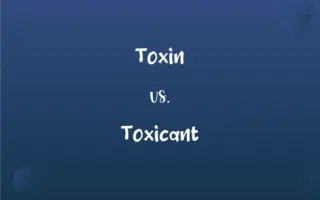
Trending Comparisons

Popular Comparisons

New Comparisons

- Privacy Policy

Home » What is a Hypothesis – Types, Examples and Writing Guide
What is a Hypothesis – Types, Examples and Writing Guide
Table of Contents

Definition:
Hypothesis is an educated guess or proposed explanation for a phenomenon, based on some initial observations or data. It is a tentative statement that can be tested and potentially proven or disproven through further investigation and experimentation.
Hypothesis is often used in scientific research to guide the design of experiments and the collection and analysis of data. It is an essential element of the scientific method, as it allows researchers to make predictions about the outcome of their experiments and to test those predictions to determine their accuracy.
Types of Hypothesis
Types of Hypothesis are as follows:
Research Hypothesis
A research hypothesis is a statement that predicts a relationship between variables. It is usually formulated as a specific statement that can be tested through research, and it is often used in scientific research to guide the design of experiments.
Null Hypothesis
The null hypothesis is a statement that assumes there is no significant difference or relationship between variables. It is often used as a starting point for testing the research hypothesis, and if the results of the study reject the null hypothesis, it suggests that there is a significant difference or relationship between variables.
Alternative Hypothesis
An alternative hypothesis is a statement that assumes there is a significant difference or relationship between variables. It is often used as an alternative to the null hypothesis and is tested against the null hypothesis to determine which statement is more accurate.
Directional Hypothesis
A directional hypothesis is a statement that predicts the direction of the relationship between variables. For example, a researcher might predict that increasing the amount of exercise will result in a decrease in body weight.
Non-directional Hypothesis
A non-directional hypothesis is a statement that predicts the relationship between variables but does not specify the direction. For example, a researcher might predict that there is a relationship between the amount of exercise and body weight, but they do not specify whether increasing or decreasing exercise will affect body weight.
Statistical Hypothesis
A statistical hypothesis is a statement that assumes a particular statistical model or distribution for the data. It is often used in statistical analysis to test the significance of a particular result.
Composite Hypothesis
A composite hypothesis is a statement that assumes more than one condition or outcome. It can be divided into several sub-hypotheses, each of which represents a different possible outcome.
Empirical Hypothesis
An empirical hypothesis is a statement that is based on observed phenomena or data. It is often used in scientific research to develop theories or models that explain the observed phenomena.
Simple Hypothesis
A simple hypothesis is a statement that assumes only one outcome or condition. It is often used in scientific research to test a single variable or factor.
Complex Hypothesis
A complex hypothesis is a statement that assumes multiple outcomes or conditions. It is often used in scientific research to test the effects of multiple variables or factors on a particular outcome.
Applications of Hypothesis
Hypotheses are used in various fields to guide research and make predictions about the outcomes of experiments or observations. Here are some examples of how hypotheses are applied in different fields:
- Science : In scientific research, hypotheses are used to test the validity of theories and models that explain natural phenomena. For example, a hypothesis might be formulated to test the effects of a particular variable on a natural system, such as the effects of climate change on an ecosystem.
- Medicine : In medical research, hypotheses are used to test the effectiveness of treatments and therapies for specific conditions. For example, a hypothesis might be formulated to test the effects of a new drug on a particular disease.
- Psychology : In psychology, hypotheses are used to test theories and models of human behavior and cognition. For example, a hypothesis might be formulated to test the effects of a particular stimulus on the brain or behavior.
- Sociology : In sociology, hypotheses are used to test theories and models of social phenomena, such as the effects of social structures or institutions on human behavior. For example, a hypothesis might be formulated to test the effects of income inequality on crime rates.
- Business : In business research, hypotheses are used to test the validity of theories and models that explain business phenomena, such as consumer behavior or market trends. For example, a hypothesis might be formulated to test the effects of a new marketing campaign on consumer buying behavior.
- Engineering : In engineering, hypotheses are used to test the effectiveness of new technologies or designs. For example, a hypothesis might be formulated to test the efficiency of a new solar panel design.
How to write a Hypothesis
Here are the steps to follow when writing a hypothesis:
Identify the Research Question
The first step is to identify the research question that you want to answer through your study. This question should be clear, specific, and focused. It should be something that can be investigated empirically and that has some relevance or significance in the field.
Conduct a Literature Review
Before writing your hypothesis, it’s essential to conduct a thorough literature review to understand what is already known about the topic. This will help you to identify the research gap and formulate a hypothesis that builds on existing knowledge.
Determine the Variables
The next step is to identify the variables involved in the research question. A variable is any characteristic or factor that can vary or change. There are two types of variables: independent and dependent. The independent variable is the one that is manipulated or changed by the researcher, while the dependent variable is the one that is measured or observed as a result of the independent variable.
Formulate the Hypothesis
Based on the research question and the variables involved, you can now formulate your hypothesis. A hypothesis should be a clear and concise statement that predicts the relationship between the variables. It should be testable through empirical research and based on existing theory or evidence.
Write the Null Hypothesis
The null hypothesis is the opposite of the alternative hypothesis, which is the hypothesis that you are testing. The null hypothesis states that there is no significant difference or relationship between the variables. It is important to write the null hypothesis because it allows you to compare your results with what would be expected by chance.
Refine the Hypothesis
After formulating the hypothesis, it’s important to refine it and make it more precise. This may involve clarifying the variables, specifying the direction of the relationship, or making the hypothesis more testable.
Examples of Hypothesis
Here are a few examples of hypotheses in different fields:
- Psychology : “Increased exposure to violent video games leads to increased aggressive behavior in adolescents.”
- Biology : “Higher levels of carbon dioxide in the atmosphere will lead to increased plant growth.”
- Sociology : “Individuals who grow up in households with higher socioeconomic status will have higher levels of education and income as adults.”
- Education : “Implementing a new teaching method will result in higher student achievement scores.”
- Marketing : “Customers who receive a personalized email will be more likely to make a purchase than those who receive a generic email.”
- Physics : “An increase in temperature will cause an increase in the volume of a gas, assuming all other variables remain constant.”
- Medicine : “Consuming a diet high in saturated fats will increase the risk of developing heart disease.”
Purpose of Hypothesis
The purpose of a hypothesis is to provide a testable explanation for an observed phenomenon or a prediction of a future outcome based on existing knowledge or theories. A hypothesis is an essential part of the scientific method and helps to guide the research process by providing a clear focus for investigation. It enables scientists to design experiments or studies to gather evidence and data that can support or refute the proposed explanation or prediction.
The formulation of a hypothesis is based on existing knowledge, observations, and theories, and it should be specific, testable, and falsifiable. A specific hypothesis helps to define the research question, which is important in the research process as it guides the selection of an appropriate research design and methodology. Testability of the hypothesis means that it can be proven or disproven through empirical data collection and analysis. Falsifiability means that the hypothesis should be formulated in such a way that it can be proven wrong if it is incorrect.
In addition to guiding the research process, the testing of hypotheses can lead to new discoveries and advancements in scientific knowledge. When a hypothesis is supported by the data, it can be used to develop new theories or models to explain the observed phenomenon. When a hypothesis is not supported by the data, it can help to refine existing theories or prompt the development of new hypotheses to explain the phenomenon.
When to use Hypothesis
Here are some common situations in which hypotheses are used:
- In scientific research , hypotheses are used to guide the design of experiments and to help researchers make predictions about the outcomes of those experiments.
- In social science research , hypotheses are used to test theories about human behavior, social relationships, and other phenomena.
- I n business , hypotheses can be used to guide decisions about marketing, product development, and other areas. For example, a hypothesis might be that a new product will sell well in a particular market, and this hypothesis can be tested through market research.
Characteristics of Hypothesis
Here are some common characteristics of a hypothesis:
- Testable : A hypothesis must be able to be tested through observation or experimentation. This means that it must be possible to collect data that will either support or refute the hypothesis.
- Falsifiable : A hypothesis must be able to be proven false if it is not supported by the data. If a hypothesis cannot be falsified, then it is not a scientific hypothesis.
- Clear and concise : A hypothesis should be stated in a clear and concise manner so that it can be easily understood and tested.
- Based on existing knowledge : A hypothesis should be based on existing knowledge and research in the field. It should not be based on personal beliefs or opinions.
- Specific : A hypothesis should be specific in terms of the variables being tested and the predicted outcome. This will help to ensure that the research is focused and well-designed.
- Tentative: A hypothesis is a tentative statement or assumption that requires further testing and evidence to be confirmed or refuted. It is not a final conclusion or assertion.
- Relevant : A hypothesis should be relevant to the research question or problem being studied. It should address a gap in knowledge or provide a new perspective on the issue.
Advantages of Hypothesis
Hypotheses have several advantages in scientific research and experimentation:
- Guides research: A hypothesis provides a clear and specific direction for research. It helps to focus the research question, select appropriate methods and variables, and interpret the results.
- Predictive powe r: A hypothesis makes predictions about the outcome of research, which can be tested through experimentation. This allows researchers to evaluate the validity of the hypothesis and make new discoveries.
- Facilitates communication: A hypothesis provides a common language and framework for scientists to communicate with one another about their research. This helps to facilitate the exchange of ideas and promotes collaboration.
- Efficient use of resources: A hypothesis helps researchers to use their time, resources, and funding efficiently by directing them towards specific research questions and methods that are most likely to yield results.
- Provides a basis for further research: A hypothesis that is supported by data provides a basis for further research and exploration. It can lead to new hypotheses, theories, and discoveries.
- Increases objectivity: A hypothesis can help to increase objectivity in research by providing a clear and specific framework for testing and interpreting results. This can reduce bias and increase the reliability of research findings.
Limitations of Hypothesis
Some Limitations of the Hypothesis are as follows:
- Limited to observable phenomena: Hypotheses are limited to observable phenomena and cannot account for unobservable or intangible factors. This means that some research questions may not be amenable to hypothesis testing.
- May be inaccurate or incomplete: Hypotheses are based on existing knowledge and research, which may be incomplete or inaccurate. This can lead to flawed hypotheses and erroneous conclusions.
- May be biased: Hypotheses may be biased by the researcher’s own beliefs, values, or assumptions. This can lead to selective interpretation of data and a lack of objectivity in research.
- Cannot prove causation: A hypothesis can only show a correlation between variables, but it cannot prove causation. This requires further experimentation and analysis.
- Limited to specific contexts: Hypotheses are limited to specific contexts and may not be generalizable to other situations or populations. This means that results may not be applicable in other contexts or may require further testing.
- May be affected by chance : Hypotheses may be affected by chance or random variation, which can obscure or distort the true relationship between variables.
About the author
Muhammad Hassan
Researcher, Academic Writer, Web developer
You may also like

Data Collection – Methods Types and Examples

Delimitations in Research – Types, Examples and...

Research Process – Steps, Examples and Tips

Research Design – Types, Methods and Examples

Institutional Review Board – Application Sample...

Evaluating Research – Process, Examples and...
Thesis and Purpose Statements
Use the guidelines below to learn the differences between thesis and purpose statements.
In the first stages of writing, thesis or purpose statements are usually rough or ill-formed and are useful primarily as planning tools.
A thesis statement or purpose statement will emerge as you think and write about a topic. The statement can be restricted or clarified and eventually worked into an introduction.
As you revise your paper, try to phrase your thesis or purpose statement in a precise way so that it matches the content and organization of your paper.
Thesis statements
A thesis statement is a sentence that makes an assertion about a topic and predicts how the topic will be developed. It does not simply announce a topic: it says something about the topic.
Good: X has made a significant impact on the teenage population due to its . . . Bad: In this paper, I will discuss X.
A thesis statement makes a promise to the reader about the scope, purpose, and direction of the paper. It summarizes the conclusions that the writer has reached about the topic.
A thesis statement is generally located near the end of the introduction. Sometimes in a long paper, the thesis will be expressed in several sentences or an entire paragraph.
A thesis statement is focused and specific enough to be proven within the boundaries of the paper. Key words (nouns and verbs) should be specific, accurate, and indicative of the range of research, thrust of the argument or analysis, and the organization of supporting information.
Purpose statements
A purpose statement announces the purpose, scope, and direction of the paper. It tells the reader what to expect in a paper and what the specific focus will be.
Common beginnings include:
“This paper examines . . .,” “The aim of this paper is to . . .,” and “The purpose of this essay is to . . .”
A purpose statement makes a promise to the reader about the development of the argument but does not preview the particular conclusions that the writer has drawn.
A purpose statement usually appears toward the end of the introduction. The purpose statement may be expressed in several sentences or even an entire paragraph.
A purpose statement is specific enough to satisfy the requirements of the assignment. Purpose statements are common in research papers in some academic disciplines, while in other disciplines they are considered too blunt or direct. If you are unsure about using a purpose statement, ask your instructor.
This paper will examine the ecological destruction of the Sahel preceding the drought and the causes of this disintegration of the land. The focus will be on the economic, political, and social relationships which brought about the environmental problems in the Sahel.
Sample purpose and thesis statements
The following example combines a purpose statement and a thesis statement (bold).
The goal of this paper is to examine the effects of Chile’s agrarian reform on the lives of rural peasants. The nature of the topic dictates the use of both a chronological and a comparative analysis of peasant lives at various points during the reform period. . . The Chilean reform example provides evidence that land distribution is an essential component of both the improvement of peasant conditions and the development of a democratic society. More extensive and enduring reforms would likely have allowed Chile the opportunity to further expand these horizons.
For more tips about writing thesis statements, take a look at our new handout on Developing a Thesis Statement.

Writing Process and Structure
This is an accordion element with a series of buttons that open and close related content panels.
Getting Started with Your Paper
Interpreting Writing Assignments from Your Courses
Generating Ideas for Your Paper
Creating an Argument
Thesis vs. Purpose Statements
Developing a Thesis Statement
Architecture of Arguments
Working with Sources
Quoting and Paraphrasing Sources
Using Literary Quotations
Citing Sources in Your Paper
Drafting Your Paper
Introductions
Paragraphing
Developing Strategic Transitions
Conclusions
Revising Your Paper
Peer Reviews
Reverse Outlines
Revising an Argumentative Paper
Revision Strategies for Longer Projects
Finishing Your Paper
Twelve Common Errors: An Editing Checklist
How to Proofread your Paper
Writing Collaboratively
Collaborative and Group Writing
- Have your assignments done by seasoned writers. 24/7
- Contact us:
- +1 (213) 221-0069
- [email protected]

Thesis vs Hypothesis vs Theory: the Differences and examples
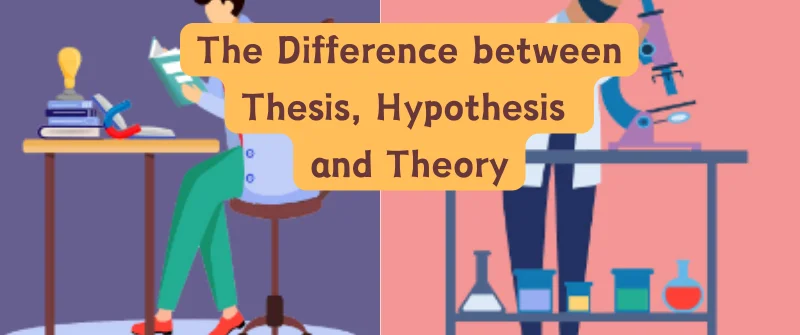
thesis hypothesis and theory
Many students may have a hard time understanding the differences between a thesis, a hypothesis, and a theory. It is important to understand their differences. Such an understanding will be instrumental.
More so, when writing complex research papers that require a thesis that has a hypothesis and utilizes theories. We have gathered from responses of our college writing service that the difference between the three is confusing.

That being said, this article is meant to explain the differences between a thesis, a hypothesis, and a theory.
Difference between Hypothesis and Thesis
There are major differences between hypothesis and thesis. While they seem to be related on the face, their differences are huge both in concept and practice.
A hypothesis is a proposed explanation of something or a phenomenon. A scientific hypothesis uses a scientific method that requires any hypothesis to be tested. As such, scientists and researchers base their hypothesis on observations that have been previously made and that which cannot be explained by the available or prevailing scientific theories.
From the definition of a hypothesis, you can see that theories must be included in any scientific method. This is the reason why this article tries to differentiate a thesis, a hypothesis, and a theory.
Moving forward, a thesis can be defined as a written piece of academic work that is submitted by students to attain a university degree. However, on a smaller scale, there is something that is referred to as a thesis statement.
This is written at the introduction of a research paper or essay that is supported by a credible argument. The link between a hypothesis and thesis is that a thesis is a distinction or an affirmation of the hypothesis.
What this means is that whenever a research paper contains a hypothesis, there should be a thesis that validates it.
People Also Read: Is using an Essay Writing Service Cheating? Is it Ethical?
What is a Hypothesis?
A hypothesis can be defined as the proposed or suggested explanation for an occurrence, something, or a phenomenon. It should be testable through scientific methods. The reason why scholarly works should have a hypothesis is that the observed phenomena could not be explained using the prevailing scientific theories hence the reason why it should be tested.
Testing the hypothesis may result in the development of new or improved scientific theories that are beneficial to the discipline and society in general.
What is a Thesis?
A thesis is a written piece of academic work that is submitted by students to attain a university degree. When a thesis is used as a stand-alone word, it denotes academic papers written by university students. It is mostly written by those pursuing postgraduate degrees, at the end of their courses. They demonstrate their proficiency in their disciplines and the topics they have selected for research.
However, when a thesis is used to refer to a statement, it denotes the statement that is written at the introduction of a research paper or essay. A thesis is supported by a credible argument.
Every research paper must have a thesis statement that acts as a guide to what the research will be all about. It is possible to receive very poor grades or even score a zero if your research paper lacks the thesis statement.
What is a Theory?
A theory can be defined as a rational form of abstract perspectives or thinking concerning the results of such thinking or a phenomenon. The process of rational and contemplative thinking is mostly associated with processes such as research or observational study.
As such, a theory can be considered to belong to both scientific and non-scientific disciplines. Theories can also belong to no discipline.
From a modernistic scientific approach, a theory can mean scientific theories that have been well confirmed to explain nature and that are created in such a way that they are consistent with the standard scientific method. A theory should fulfill all the criteria required by modern-day science.
A theory should be described in a way that scientific tests that have been conducted can provide empirical support or contradiction to the theory.
Because of the nature by which scientific theories are developed, they tend to be the most rigorous, reliable, and comprehensive when it comes to describing and supporting scientific knowledge.
The connection between a theory and a hypothesis is that when a theory has not yet been proven, it can be referred to as a hypothesis.
The thing about theories is that they are not meant to help the scientist or researcher reach a particular goal. Rather, a theory is meant to guide the process of finding facts about a phenomenon or an observation.
People Also Read: How to Use Personal Experience in Research Paper or Essay
Difference between a Theory and Thesis
A theory is a rational form of abstract perspectives or thinking concerning the results of such thinking or a phenomenon. The process of rational and contemplative thinking is mostly associated with processes such as research or observational study. On the other hand, a thesis is a written piece of academic work that is submitted by students to attain a university degree.
It denotes academic papers that are written by students in the university, especially those pursuing postgraduate degrees, at the end of their courses to demonstrate their proficiency in their disciplines and the topics they have selected for research.
To understand the application of these, read our guide on the difference between a research paper and a thesis proposal to get a wider view.
How to write a Good Hypothesis
1. asking a question.
Asking a question is the first step in the scientific method and the question should be based on who, what, where, when, why, and how . The question should be focused, specific, and researchable.
2. Gathering preliminary research
This is the process of collecting relevant data. It can be done by researching academic journals, conducting case studies, observing phenomena, and conducting experiments.
3. Formulating an answer
When the research is completed, you should think of how best to answer the question and defend your position. The answer to your question should be objective.
4. Writing the hypothesis
When your answer is ready, you can move to the next step of formulating the hypothesis. A good hypothesis should contain relevant variables, predicted outcomes, and a study group that can include non-human things. The hypothesis should not be a question but a complete statement.
5. Refining the hypothesis
Though you may skip this step, it is advisable to include it because your study may involve two groups or be a correlational study. Refining the hypothesis will ensure that you have stated the difference or relationship you expect to find.
6. Creating a null and alternative hypotheses
A null hypothesis (H0) will postulate that there is no evidence to support the difference. On the other hand, an alternative hypothesis (H1) posits that there is evidence in support of the difference.
People Also Read: Research Paper Graph: How to insert Graphs, Tables & Figures
Frequently Asked Questions
Difference between thesis and hypothesis example.
Thesis: High levels of alcohol consumption have detrimental effects on your health, such as weight gain, heart disease, and liver complications.
Hypothesis: The people who consume high levels of alcohol experience detrimental effects on their health such as weight gain, heart disease, and liver complications.
What is the difference between a summary and a thesis statement?
A summary is a brief account or statement of the main points from the researches. A thesis statement is a statement that is written at the end of the introduction of a research paper or essay that summarizes the main claims of the paper.
Difference between hypothesis and statement of the problem
A hypothesis can be defined as the proposed or suggested explanation for an occurrence, something, or a phenomenon. The same should be testable through scientific methods. Conversely, a statement of a problem is a concise description of the issue to be addressed on how it can be improved.

When not handling complex essays and academic writing tasks, Josh is busy advising students on how to pass assignments. In spare time, he loves playing football or walking with his dog around the park.
Related posts

Titles for Essay about Yourself
Good Titles for Essays about yourself: 31 Personal Essay Topics

How to Write a Diagnostic Essay
How to Write a Diagnostic Essay: Meaning and Topics Example

How Scantron Detects Cheating
Scantron Cheating: How it Detects Cheating and Tricks Students Use
This is the Difference Between a Hypothesis and a Theory
What to Know A hypothesis is an assumption made before any research has been done. It is formed so that it can be tested to see if it might be true. A theory is a principle formed to explain the things already shown in data. Because of the rigors of experiment and control, it is much more likely that a theory will be true than a hypothesis.
As anyone who has worked in a laboratory or out in the field can tell you, science is about process: that of observing, making inferences about those observations, and then performing tests to see if the truth value of those inferences holds up. The scientific method is designed to be a rigorous procedure for acquiring knowledge about the world around us.

In scientific reasoning, a hypothesis is constructed before any applicable research has been done. A theory, on the other hand, is supported by evidence: it's a principle formed as an attempt to explain things that have already been substantiated by data.
Toward that end, science employs a particular vocabulary for describing how ideas are proposed, tested, and supported or disproven. And that's where we see the difference between a hypothesis and a theory .
A hypothesis is an assumption, something proposed for the sake of argument so that it can be tested to see if it might be true.
In the scientific method, the hypothesis is constructed before any applicable research has been done, apart from a basic background review. You ask a question, read up on what has been studied before, and then form a hypothesis.
What is a Hypothesis?
A hypothesis is usually tentative, an assumption or suggestion made strictly for the objective of being tested.
When a character which has been lost in a breed, reappears after a great number of generations, the most probable hypothesis is, not that the offspring suddenly takes after an ancestor some hundred generations distant, but that in each successive generation there has been a tendency to reproduce the character in question, which at last, under unknown favourable conditions, gains an ascendancy. Charles Darwin, On the Origin of Species , 1859 According to one widely reported hypothesis , cell-phone transmissions were disrupting the bees' navigational abilities. (Few experts took the cell-phone conjecture seriously; as one scientist said to me, "If that were the case, Dave Hackenberg's hives would have been dead a long time ago.") Elizabeth Kolbert, The New Yorker , 6 Aug. 2007
What is a Theory?
A theory , in contrast, is a principle that has been formed as an attempt to explain things that have already been substantiated by data. It is used in the names of a number of principles accepted in the scientific community, such as the Big Bang Theory . Because of the rigors of experimentation and control, its likelihood as truth is much higher than that of a hypothesis.
It is evident, on our theory , that coasts merely fringed by reefs cannot have subsided to any perceptible amount; and therefore they must, since the growth of their corals, either have remained stationary or have been upheaved. Now, it is remarkable how generally it can be shown, by the presence of upraised organic remains, that the fringed islands have been elevated: and so far, this is indirect evidence in favour of our theory . Charles Darwin, The Voyage of the Beagle , 1839 An example of a fundamental principle in physics, first proposed by Galileo in 1632 and extended by Einstein in 1905, is the following: All observers traveling at constant velocity relative to one another, should witness identical laws of nature. From this principle, Einstein derived his theory of special relativity. Alan Lightman, Harper's , December 2011
Non-Scientific Use
In non-scientific use, however, hypothesis and theory are often used interchangeably to mean simply an idea, speculation, or hunch (though theory is more common in this regard):
The theory of the teacher with all these immigrant kids was that if you spoke English loudly enough they would eventually understand. E. L. Doctorow, Loon Lake , 1979 Chicago is famous for asking questions for which there can be no boilerplate answers. Example: given the probability that the federal tax code, nondairy creamer, Dennis Rodman and the art of mime all came from outer space, name something else that has extraterrestrial origins and defend your hypothesis . John McCormick, Newsweek , 5 Apr. 1999 In his mind's eye, Miller saw his case suddenly taking form: Richard Bailey had Helen Brach killed because she was threatening to sue him over the horses she had purchased. It was, he realized, only a theory , but it was one he felt certain he could, in time, prove. Full of urgency, a man with a mission now that he had a hypothesis to guide him, he issued new orders to his troops: Find out everything you can about Richard Bailey and his crowd. Howard Blum, Vanity Fair , January 1995
And sometimes one term is used as a genus, or a means for defining the other:
Laplace's popular version of his astronomy, the Système du monde , was famous for introducing what came to be known as the nebular hypothesis , the theory that the solar system was formed by the condensation, through gradual cooling, of the gaseous atmosphere (the nebulae) surrounding the sun. Louis Menand, The Metaphysical Club , 2001 Researchers use this information to support the gateway drug theory — the hypothesis that using one intoxicating substance leads to future use of another. Jordy Byrd, The Pacific Northwest Inlander , 6 May 2015 Fox, the business and economics columnist for Time magazine, tells the story of the professors who enabled those abuses under the banner of the financial theory known as the efficient market hypothesis . Paul Krugman, The New York Times Book Review , 9 Aug. 2009
Incorrect Interpretations of "Theory"
Since this casual use does away with the distinctions upheld by the scientific community, hypothesis and theory are prone to being wrongly interpreted even when they are encountered in scientific contexts—or at least, contexts that allude to scientific study without making the critical distinction that scientists employ when weighing hypotheses and theories.
The most common occurrence is when theory is interpreted—and sometimes even gleefully seized upon—to mean something having less truth value than other scientific principles. (The word law applies to principles so firmly established that they are almost never questioned, such as the law of gravity.)
This mistake is one of projection: since we use theory in general use to mean something lightly speculated, then it's implied that scientists must be talking about the same level of uncertainty when they use theory to refer to their well-tested and reasoned principles.
The distinction has come to the forefront particularly on occasions when the content of science curricula in schools has been challenged—notably, when a school board in Georgia put stickers on textbooks stating that evolution was "a theory, not a fact, regarding the origin of living things." As Kenneth R. Miller, a cell biologist at Brown University, has said , a theory "doesn’t mean a hunch or a guess. A theory is a system of explanations that ties together a whole bunch of facts. It not only explains those facts, but predicts what you ought to find from other observations and experiments.”
While theories are never completely infallible, they form the basis of scientific reasoning because, as Miller said "to the best of our ability, we’ve tested them, and they’ve held up."
More Differences Explained
- Epidemic vs. Pandemic
- Diagnosis vs. Prognosis
- Treatment vs. Cure
Word of the Day
See Definitions and Examples »
Get Word of the Day daily email!
Games & Quizzes

Commonly Confused
'canceled' or 'cancelled', is it 'home in' or 'hone in', the difference between 'race' and 'ethnicity', homophones, homographs, and homonyms, on 'biweekly' and 'bimonthly', grammar & usage, more words you always have to look up, 'fewer' and 'less', 7 pairs of commonly confused words, more commonly misspelled words, commonly misspelled words, great big list of beautiful and useless words, vol. 4, 9 other words for beautiful, why jaywalking is called jaywalking, the words of the week - may 31, pilfer: how to play and win.

Hi, AI: Our Thesis on AI Voice Agents
Olivia Moore and Anish Acharya
- Hacker News
View this report on Gamma.
Now is the time to reinvent the phone call. Thanks to gen AI, no human will ever again have to make a call. Humans will spend time on the phone only when a call has value to them.
For businesses, this may mean: (1) time and labor cost savings from human callers; (2) potential to re-allocate resources towards increased revenue generation; and (3) reduced risk with more compliant and consistent customer experiences.
For consumers, voice agents can provide access to human-grade services without the need to pay or “match with” an actual human. Currently, this includes therapists, coaches, and companions — in the future, this is likely to encompass a much broader range of experiences built around voice. Like most other consumer software, the “winners” will be unpredictable!
Phone calls are an API to the world — and AI takes this to the next level.
Where We See Opportunity
There is massive opportunity at each layer — infra players, consumer interfaces, and enterprise agents. For B2C and B2B voice agents, we have a few hypotheses around the most exciting emergent products:
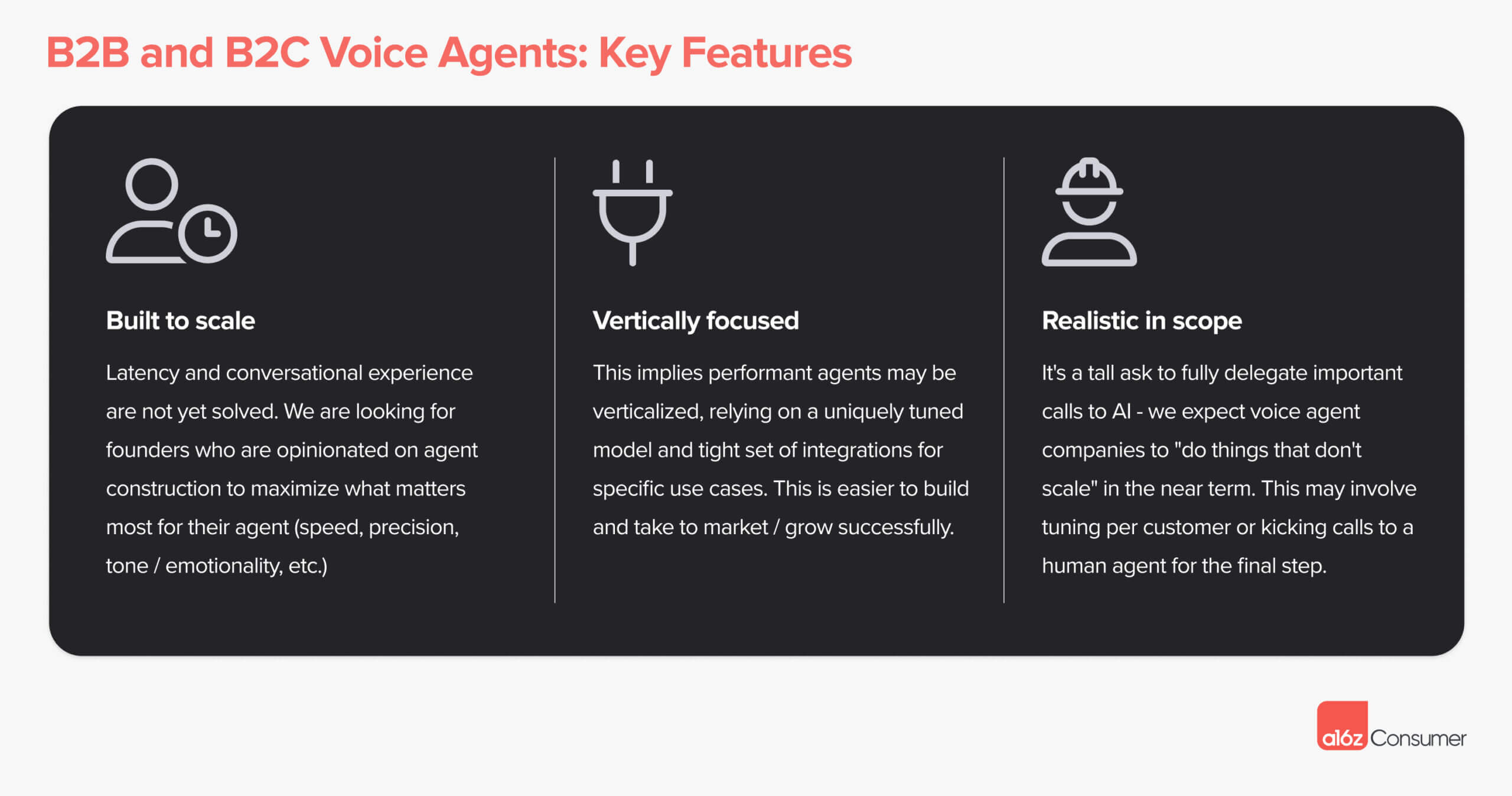
If you are building here, reach out to [email protected] and [email protected].
The Stack: How Do You Build a Voice Agent?
New, multi-modal models like GPT-4o may change the structure of the stack by “running” several of these layers concurrently via one model. This may reduce latency and cost, and power more natural conversational interfaces — as many agents haven’t been able to reach true human-like quality with the composed stack below.
To function, voice agents need to ingest human speech (ASR), process this input with an LLM and return an output, and then speak back to the human (TTS).
For some companies/approaches, the LLM or a series of LLMs handles the conversational flow and emotionality. In other cases, there are unique engines to add emotion, manage interruptions, etc. “Full stack” voice providers offer this all in one place.
Consumer (B2C) and enterprise (B2B) apps sit on top of this stack. Even using third party providers, apps (typically) plug in a custom LLM — which often also serves as the conversational engine.
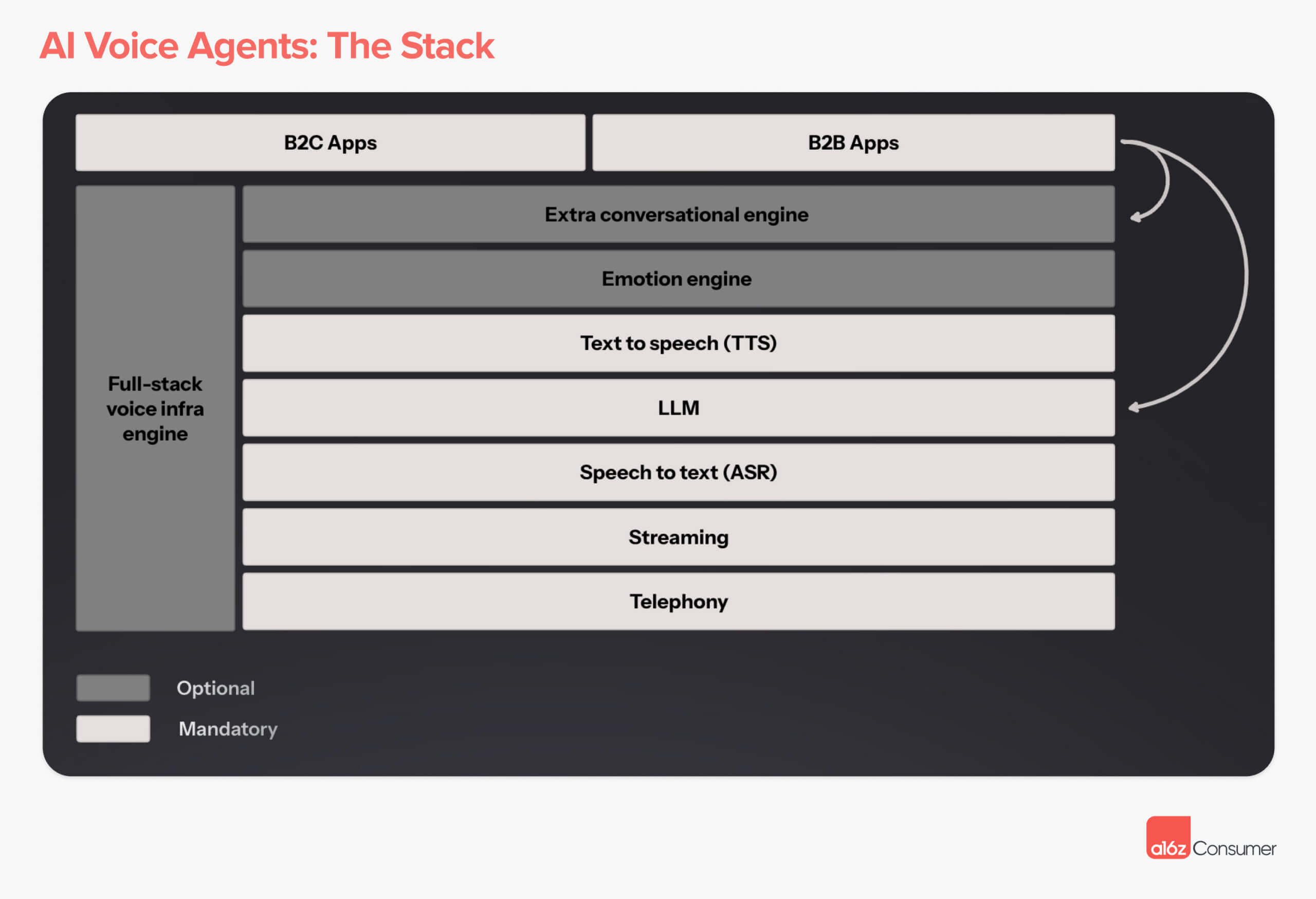
Full Stack vs. Self-Assembled
Voice agent founders can choose between spinning up an agent on a full stack platform (ex. Retell , Vapi , Bland ) or assembling the stack themselves. In making this decision, there are a few key vectors:
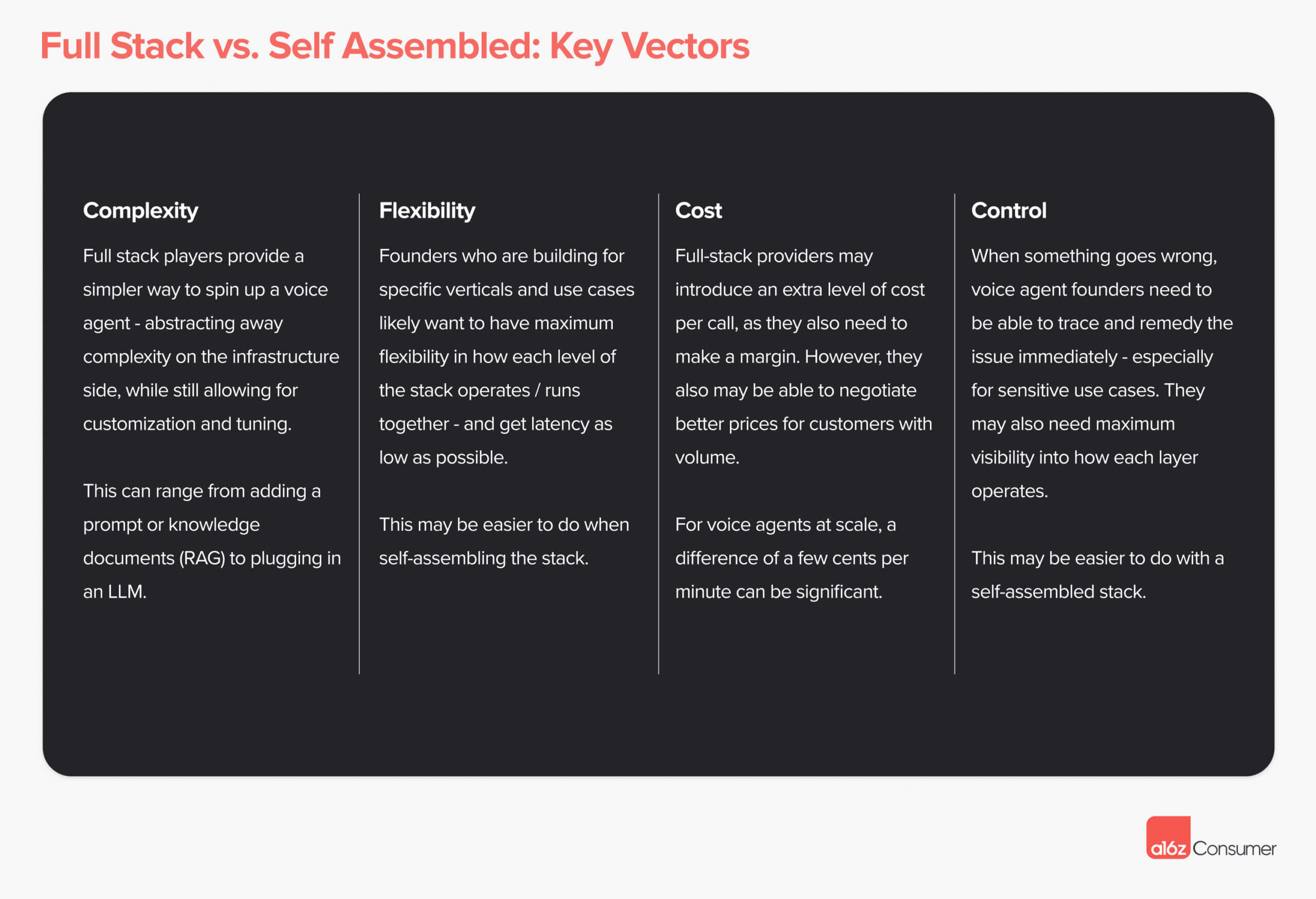
These are some of the leading players across each stack level now. This is not a comprehensive market map, but represents the names most commonly raised by voice agent founders. We expect this stack to change significantly as multi-modal models emerge.
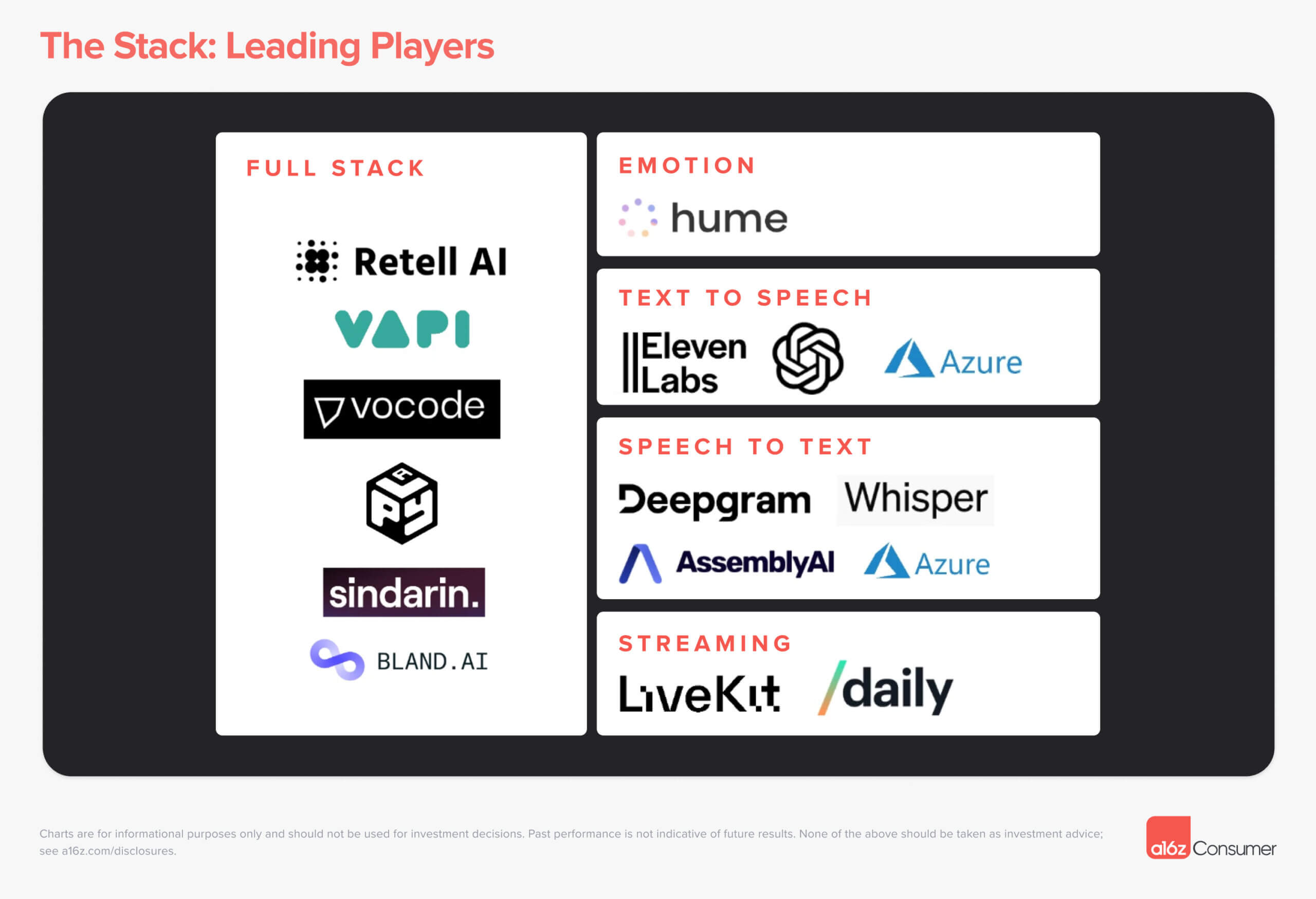
If you’re working on a voice agent infrastructure company, reach out to Jennifer Li ([email protected]) and Yoko Li ([email protected]) on our team.
B2B Agents: Our Thesis
We are transitioning from 1.0 AI voice (phone tree) → 2.0 wave of AI voice (LLM-based). 2.0 companies have been emerging in the last 6 months or so. 1.0 companies may be more accurate now, but the 2.0 approach should be much more scalable and accurate in the long term.
There is unlikely to be one horizontal model or platform that works across all types of enterprise voice agents. There are a few key differences across verticals: (1) call types, tones, and structures; (2) integrations and processes; and (3) GTM and “killer features.”
This is likely to mean an explosion of vertical agents that are highly opinionated in the UI. This requires founding teams with deep domain expertise or interest. Labor is the #1 cost center for many businesses — TAM is large for companies that “get it right.”
The most near-term opportunities may be in industries that live and die by phone appointments, have significant labor shortages, and have low call complexity. As agents become more sophisticated, they will be able to tackle more complex calls.
B2B Agents: Evolution
We’ve seen three primary waves of tech in the B2B voice agent space:
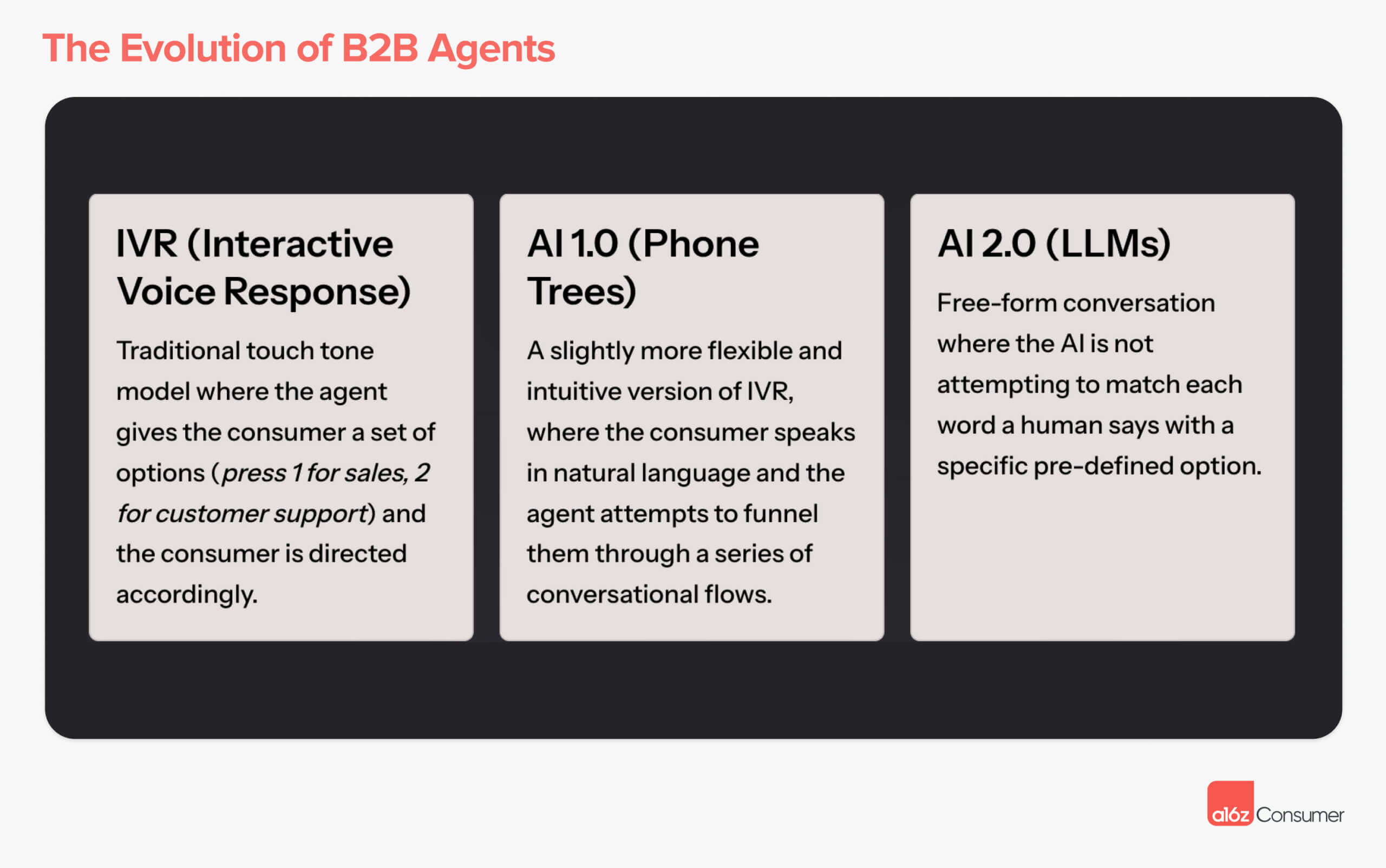
Many voice agent companies are taking a vertical-specific approach for a specific industry (ex. auto services) or a specific type of task (ex. appointment scheduling). This is for a few reasons:
- Execution difficulty. The quality bar is high to entrust calls to an AI — and the conversational flow (plus the backend workflow on the customer’s side) can quickly become complex/specific. Companies that build for the “edge cases” in these verticals have a better chance of success (ex. unique vocabulary a general model will misunderstand).
- Regulations and licenses. Some voice agent companies face special restrictions, certifications needed, etc. A classic example of this is healthcare (ex. HIPAA compliance), though this is also cropping up in categories like sales where there are AI cold calling regulations on a national level.
- Integrations. Nailing the user experience (both for the business and the consumer) in some categories may require a long tail of integrations — or specialized integrations that aren’t worthwhile to build unless you are attempting to serve that specific use case.
- Wedge into other software. Voice is a natural entry into core customer actions like bookings, renewals, quotes, etc. In some cases, this will be a wedge into a broader vertical SaaS platform for these businesses — especially if the customer set still largely operates offline.
B2B Agents: Where We See Opportunity
Llm based — but not necessarily 100% automated from day one..
The “strong form” of an AI voice agent will be an entirely LLM-driven conversation, not an interactive voice response (IVR) or phone tree approach. However, because LLMs are not 100% reliable all the way through, there is likely to be some (temporary) “human in the loop” for more sensitive/larger transactions. This also makes vertical-specific workflows particularly important, as they can maximize the probability of success while minimizing human interference with fewer edge cases.
Tuning custom models vs. prompting LLM approach.
B2B voice agents will need to navigate specialized (or vertical-specific) conversations for which a general LLM is likely insufficient. Many companies are tuning per customer models (using a few hundred or low thousands of data points) and will likely extrapolate this back to a company-wide base model. The custom tuning may even continue for enterprise clients. Note: Some companies may tune a “general” model (to be used across clients) for their specific use case(s), and then prompt on a per-customer basis.
Technical teams with domain expertise.
Given their complexity, some prior AI background will be helpful — if not necessary — for spinning up and scaling high quality B2B voice agents. However, understanding how to package the product and wedge into the vertical is likely to be equally important — requiring either domain expertise or strong interest. You don’t need a PhD in AI to build and launch an enterprise voice agent!
Sharp POV on integrations + ecosystem.
Similar to the above, buyers in each vertical have a few specific features or integrations that they are typically looking to see before they will make a purchase. In fact, this may be the proof point that elevates the product from “useful” to “magic” in their assessment. This is another reason why it makes sense to start fairly verticalized.
Either “enterprise grade” or strong product-led growth (PLG) motion.
For verticals with significant revenue concentration in the top companies/providers, voice agent companies may start with enterprises and eventually “trickle down” to SMBs with a self-serve product. SMB customers are desperate for solutions here and are willing to test a variety of options — but may not provide the scale/quality of data that allows a startup to tune the model to enterprise caliber.
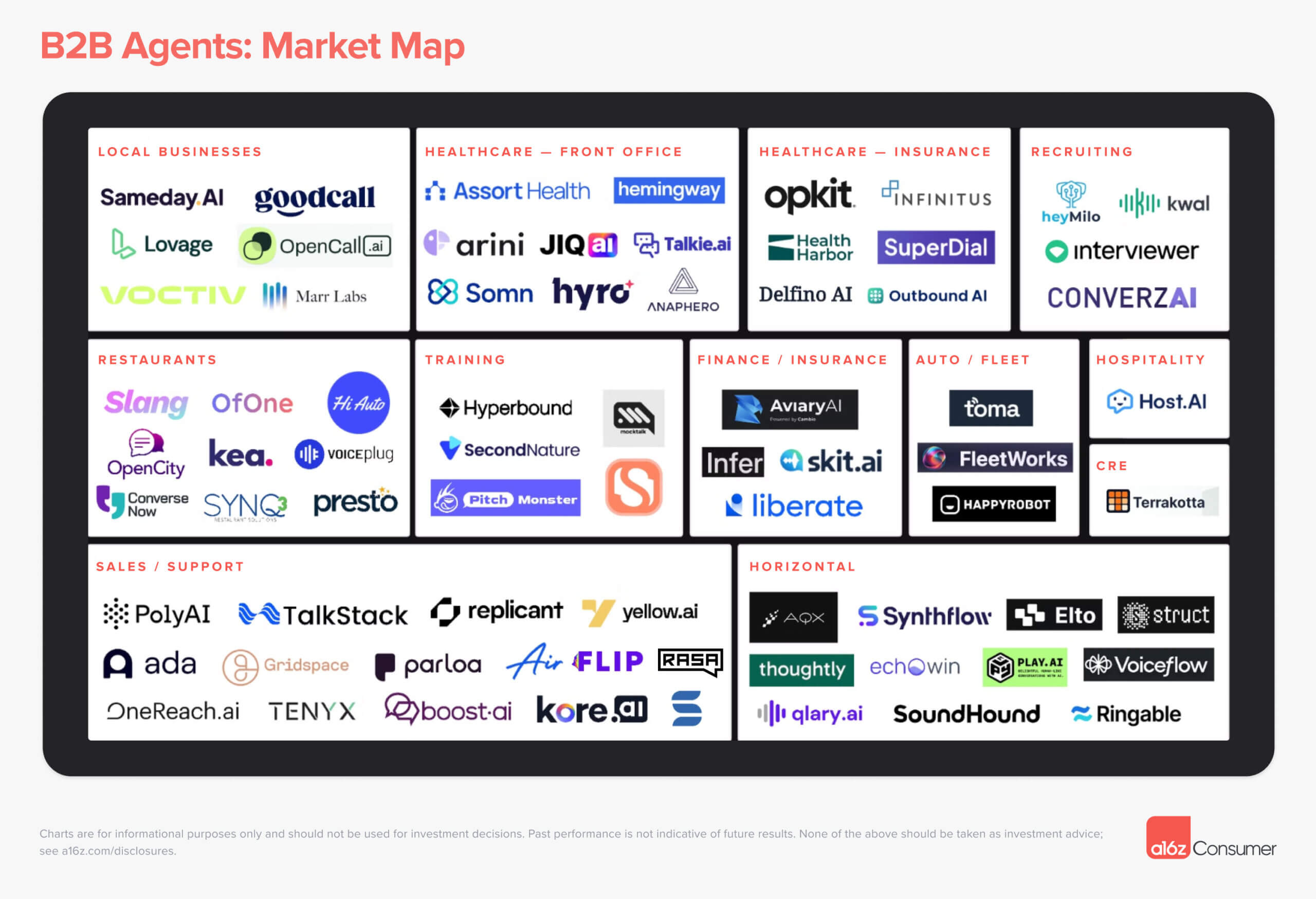
B2C Agents: Our Thesis
In B2B, voice agents largely replace existing phone calls to complete a specific task. For consumer agents, the user has to choose to continue to engage, which is challenging, as voice is not always convenient to interact with. This means the product bar is “higher.”
The first and most obvious application of consumer voice agents is taking expensive or inaccessible human services, and replacing the supplier with an AI. This includes therapy, coaching, tutoring, and more — anything dialogue-based that can be completed virtually.
However, we believe the true magic in B2C voice agents is likely yet to come! We’re looking for products that use the power of voice to enable new kinds of “conversations” that didn’t exist before. This may reinvent the form factor of existing services, or create entirely new ones.
For products that nail the UX, voice agents provide an opportunity to engage consumers at a level never before seen in software — truly mimicking the human connection. This may manifest in the agent as the product , or voice as a mode of a broader product.
B2C Agents: Evolution
So far, the dominant consumer AI voice agents are from large companies, like ChatGPT Voice and Inflection’s Pi app. There are a few reasons consumer voice has been slower to emerge:
- Large companies already have consumer distribution and best-in-class models in terms of accuracy, latency, etc. Voice is not easy to deliver at scale. This is especially true given the recent launch of GPT-4o.
- B2B voice agents are “plugging in” AI to an existing process — while B2C voice agents require users to adopt a new behavior. This can be slower/require a more magical product.
- Consumers have been negatively conditioned around voice AI due to experiences with products like Siri, so are not necessarily inspired to try new apps.
- Broad-based products are generally able to deliver on the basic use cases of voice AI — tutoring, companionship, etc. B2C voice startups are just starting to tackle use cases or create experiences that ChatGPT, Pi, etc. would not handle.
B2C Agents: Where We See Opportunity
Strong pov on why voice is necessary..
We are excited about products and founders that are opinionated on how voice brings unique value to the product — not just “voice for the sake of voice.” In many cases, a voice interface is actually a net negative versus a text interface, as it’s more inconvenient to consume and extract information from.
Strong POV on why real time voice is necessary.
While voice is difficult to consume, real time voice is even more difficult (vs. async voice messages). We are excited about founders that have a perspective on why their product needs to be built around live conversations — perhaps it’s for human-like companionship, a practice environment, etc.
Non-skeuomorphic to pre-AI “product.”
We suspect that the strong-form products will not be a direct translation of a previously human to human conversation, where the AI voice agent simply plugs in for the human provider. First, it’s difficult to live up to that standard — but more importantly, there is an opportunity to deliver the same value better (more efficiently, more joyfully) using AI.
Verticalized to the extent where model quality doesn’t = winner
The leading general consumer AI products (ChatGPT, Pi, Claude) have high quality voice modes. They can meaningfully engage in many types of conversations and interactions. And, they will likely win on latency and conversational flow in the near term as they host their own models and stack.
We are excited to see startups succeed either by tailoring or tuning for a specific type of conversation, or building a UI that provides more context and value to the voice agent experience — ex. tracking progress over time, or steering the conversation/experience in an opinionated way.
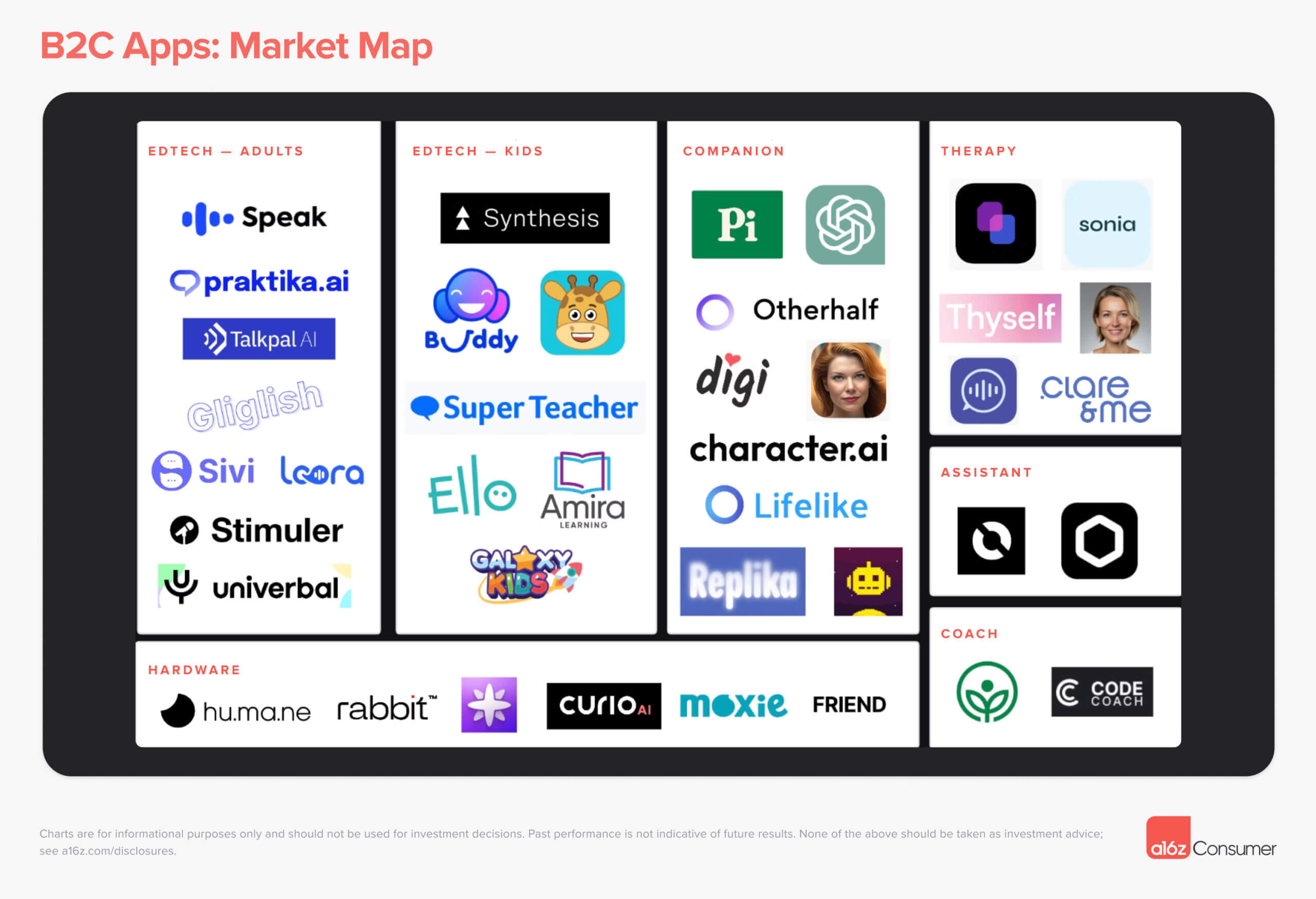
If you’re building an AI voice agent, reach out to [email protected] and [email protected] — we’d love to hear from you.

Olivia Moore is a partner on the consumer tech team at Andreessen Horowitz, where she focuses on investing in AI.

Anish Acharya Anish Acharya is an entrepreneur and general partner at Andreessen Horowitz. At a16z, he focuses on consumer investing, including AI-native products and companies that will help usher in a new era of abundance.
- How AI Will Usher in an Era of Abundance Anish Acharya
- The Top 100 Gen AI Consumer Apps Olivia Moore
- The Future of Prosumer: The Rise of “AI Native” Workflows Anish Acharya, Justine Moore, and Olivia Moore
- AI + a16z a16z
The views expressed here are those of the individual AH Capital Management, L.L.C. (“a16z”) personnel quoted and are not the views of a16z or its affiliates. Certain information contained in here has been obtained from third-party sources, including from portfolio companies of funds managed by a16z. While taken from sources believed to be reliable, a16z has not independently verified such information and makes no representations about the enduring accuracy of the information or its appropriateness for a given situation. In addition, this content may include third-party advertisements; a16z has not reviewed such advertisements and does not endorse any advertising content contained therein.
This content is provided for informational purposes only, and should not be relied upon as legal, business, investment, or tax advice. You should consult your own advisers as to those matters. References to any securities or digital assets are for illustrative purposes only, and do not constitute an investment recommendation or offer to provide investment advisory services. Furthermore, this content is not directed at nor intended for use by any investors or prospective investors, and may not under any circumstances be relied upon when making a decision to invest in any fund managed by a16z. (An offering to invest in an a16z fund will be made only by the private placement memorandum, subscription agreement, and other relevant documentation of any such fund and should be read in their entirety.) Any investments or portfolio companies mentioned, referred to, or described are not representative of all investments in vehicles managed by a16z, and there can be no assurance that the investments will be profitable or that other investments made in the future will have similar characteristics or results. A list of investments made by funds managed by Andreessen Horowitz (excluding investments for which the issuer has not provided permission for a16z to disclose publicly as well as unannounced investments in publicly traded digital assets) is available at https://a16z.com/investments/ .
Charts and graphs provided within are for informational purposes solely and should not be relied upon when making any investment decision. Past performance is not indicative of future results. The content speaks only as of the date indicated. Any projections, estimates, forecasts, targets, prospects, and/or opinions expressed in these materials are subject to change without notice and may differ or be contrary to opinions expressed by others. Please see https://a16z.com/disclosures for additional important information.
- How AI Will Usher in an Era of Abundance Anish Acharya Read More
- The Top 100 Gen AI Consumer Apps Olivia Moore Read More
- The Future of Prosumer: The Rise of “AI Native” Workflows Anish Acharya , Justine Moore , and Olivia Moore Read More

Customer Insights - Second Edition
(0 reviews)
Aila Khan, Western Sydney University
Mohammad Munir Hossain, Western Sydney University
Sabreena Zoha Amin, Western Sydney University
Copyright Year: 2023
Publisher: Western Sydney University
Language: English
Formats Available
Conditions of use.
Table of Contents
- Introduction to the Second Edition
- Acknowledgement of country
- Acknowledgments
- Difference between marketing research and customer insights
- Research ethics
- Secondary research
- Use of census data
- Primary research
- Qualitative vs quantitative research
- Types of research design
- Focus groups
- Observational research
- Measures or types of variables
- Questionnaire design
- Sampling methods
- Errors in research
- Research panels
- Survey distribution methods
- Descriptive statistics
- Association between variables
- Differences between respondent groups
- Sentiment analysis
- Artificial intelligence and information
- Social media analytics
- Researching Indigenous Communities
- Communicating insights
- Infographics
- The process: from generating to using customer insights
- Case Study: Using customer insights to reposition Western Sydney University
- Appendix: Hypothesis Testing
Ancillary Material
About the book.
Increasingly, the concept of marketing research is being replaced with the term ‘customer or consumer insights’. As decision-makers are bombarded with data, it is important to have an Insights Team or Department which can sift through it all and identify those nuggets of information that can meaningfully explain human behaviour. Such insights must translate into an informed business strategy for success. This book has been curated to ensure that the practice of data collection, analysis, and interpretation is presented from an industry perspective.
About the Contributors
Dr. Aila Khan is a Senior Lecturer at the School of Business, Western Sydney University (WSU). Some of her most exciting projects – social robots, individuals’ well-being, and charitable giving – were initiated by students as part of their thesis work.
Dr. Mohammad Munir Hossain has over 23 years of experience in academia. His research interests are in the fields of consumer behaviour and cross-cultural studies.
Dr. Sabreena Zoha Amin is a researcher and an academic at the School of Business, Western Sydney University (WSU), Australia. Sabreena holds research interest in the broad areas of consumer behaviour, service marketing, digital marketing, and international marketing.
Contribute to this Page

COMMENTS
1. Nature of statement. Thesis: A thesis presents a clear and definitive statement or argument that summarizes the main point of a research paper or essay. Hypothesis: A hypothesis is a tentative and testable proposition or educated guess that suggests a possible outcome of an experiment or research study. 2.
A thesis is a statement that is put forward as a premise to be maintained or proved. The main difference between thesis and hypothesis is that thesis is found in all research studies whereas a hypothesis is mainly found in experimental quantitative research studies. This article explains, 1. What is a Thesis? - Definition, Features, Function. 2.
A hypothesis is a statement that can be proved or disproved. It is typically used in quantitative research and predicts the relationship between variables. A thesis statement is a short, direct sentence that summarizes the main point or claim of an essay or research paper. It is seen in quantitative, qualitative, and mixed methods research.
Thesis vs. Hypothesis; Thesis Hypothesis; Statement or proposition that is put forward as the premise of an argument or a piece of writing: Proposed explanation or prediction for a phenomenon that is based on limited evidence or preliminary data: Assertion that a writer intends to prove or support with evidence and arguments
Thesis. Your thesis is the central claim in your essay—your main insight or idea about your source or topic. Your thesis should appear early in an academic essay, followed by a logically constructed argument that supports this central claim. A strong thesis is arguable, which means a thoughtful reader could disagree with it and therefore ...
Revised on April 16, 2024. A thesis is a type of research paper based on your original research. It is usually submitted as the final step of a master's program or a capstone to a bachelor's degree. Writing a thesis can be a daunting experience. Other than a dissertation, it is one of the longest pieces of writing students typically complete.
A research hypothesis (also called a scientific hypothesis) is a statement about the expected outcome of a study (for example, a dissertation or thesis). To constitute a quality hypothesis, the statement needs to have three attributes - specificity, clarity and testability. Let's take a look at these more closely.
A research paper that presents a sustained argument will usually encapsulate this argument in a thesis statement. A research paper designed to present the results of empirical research tends to present a research question that it seeks to answer. It may also include a hypothesis —a prediction that will be confirmed or disproved by your research.
Developing a hypothesis (with example) Step 1. Ask a question. Writing a hypothesis begins with a research question that you want to answer. The question should be focused, specific, and researchable within the constraints of your project. Example: Research question.
5 mains differences between thesis and hypothesis. Thesis and hypothesis are different in several ways, here are the 5 keys differences between those terms: A thesis is a statement that can be argued, while a hypothesis cannot be argued. A thesis is usually longer than a hypothesis. A thesis is more detailed than a hypothesis.
The core part of your thesis starts with your research question or hypothesis and proceeds through your explanation of methods and results, or data analysis, and ends with a discussion of your findings. The research question and hypothesis mark your own disciplinary territory and drive your research. Whether you have both a research question ...
A thesis statement is developed, supported, and explained in the body of the essay or research report by means of examples and evidence. Every research study should contain a concise and well-written thesis statement. If the intent of the study is to prove/disprove something, that research report will also contain an hypothesis statement.
Step 5: Phrase your hypothesis in three ways. To identify the variables, you can write a simple prediction in if … then form. The first part of the sentence states the independent variable and the second part states the dependent variable. If a first-year student starts attending more lectures, then their exam scores will improve.
A hypothesis is a tentative statement about the relationship between two or more variables. It is a specific, testable prediction about what you expect to happen in a study. It is a preliminary answer to your question that helps guide the research process. Consider a study designed to examine the relationship between sleep deprivation and test ...
A "thesis" is a statement or theory that is put forward as a premise to be maintained or proved, typically a position a student proposes to defend in a thesis (long essay/dissertation). Conversely, a "hypothesis" is a supposition or proposed explanation made on the basis of limited evidence as a starting point for further investigation. A ...
Definition: Hypothesis is an educated guess or proposed explanation for a phenomenon, based on some initial observations or data. It is a tentative statement that can be tested and potentially proven or disproven through further investigation and experimentation. Hypothesis is often used in scientific research to guide the design of experiments ...
The Hypothesis statement comes in different format but with the intent to help prove or disprove a phenomenon. The hypothesis can help defend, support, explain or disprove, argue against the thesis statement.Usually the hypothesis measures specific issues or variables-two or more and therefore should be testable.
A thesis statement makes a promise to the reader about the scope, purpose, and direction of the paper. It summarizes the conclusions that the writer has reached about the topic. A thesis statement is generally located near the end of the introduction. Sometimes in a long paper, the thesis will be expressed in several sentences or an entire ...
Theory vs. Hypothesis: Basics of the Scientific Method. Written by MasterClass. Last updated: Jun 7, 2021 • 2 min read. Though you may hear the terms "theory" and "hypothesis" used interchangeably, these two scientific terms have drastically different meanings in the world of science.
This is written at the introduction of a research paper or essay that is supported by a credible argument. The link between a hypothesis and thesis is that a thesis is a distinction or an affirmation of the hypothesis. What this means is that whenever a research paper contains a hypothesis, there should be a thesis that validates it.
A hypothesis is an assumption made before any research has been done. It is formed so that it can be tested to see if it might be true. A theory is a principle formed to explain the things already shown in data. Because of the rigors of experiment and control, it is much more likely that a theory will be true than a hypothesis.
For example, a hypothesis might be: "If students study for two hours before a test, then they will perform better on the test." Hypotheses are tested through experiments or other forms of research. For example, a scientist might test the hypothesis that students who study for two hours before a test will perform better on the test by conducting ...
B2B Agents: Our Thesis. We are transitioning from 1.0 AI voice (phone tree) → 2.0 wave of AI voice (LLM-based). 2.0 companies have been emerging in the last 6 months or so. 1.0 companies may be more accurate now, but the 2.0 approach should be much more scalable and accurate in the long term.
Increasingly, the concept of marketing research is being replaced with the term 'customer or consumer insights'. As decision-makers are bombarded with data, it is important to have an Insights Team or Department which can sift through it all and identify those nuggets of information that can meaningfully explain human behaviour. Such insights must translate into an informed business ...